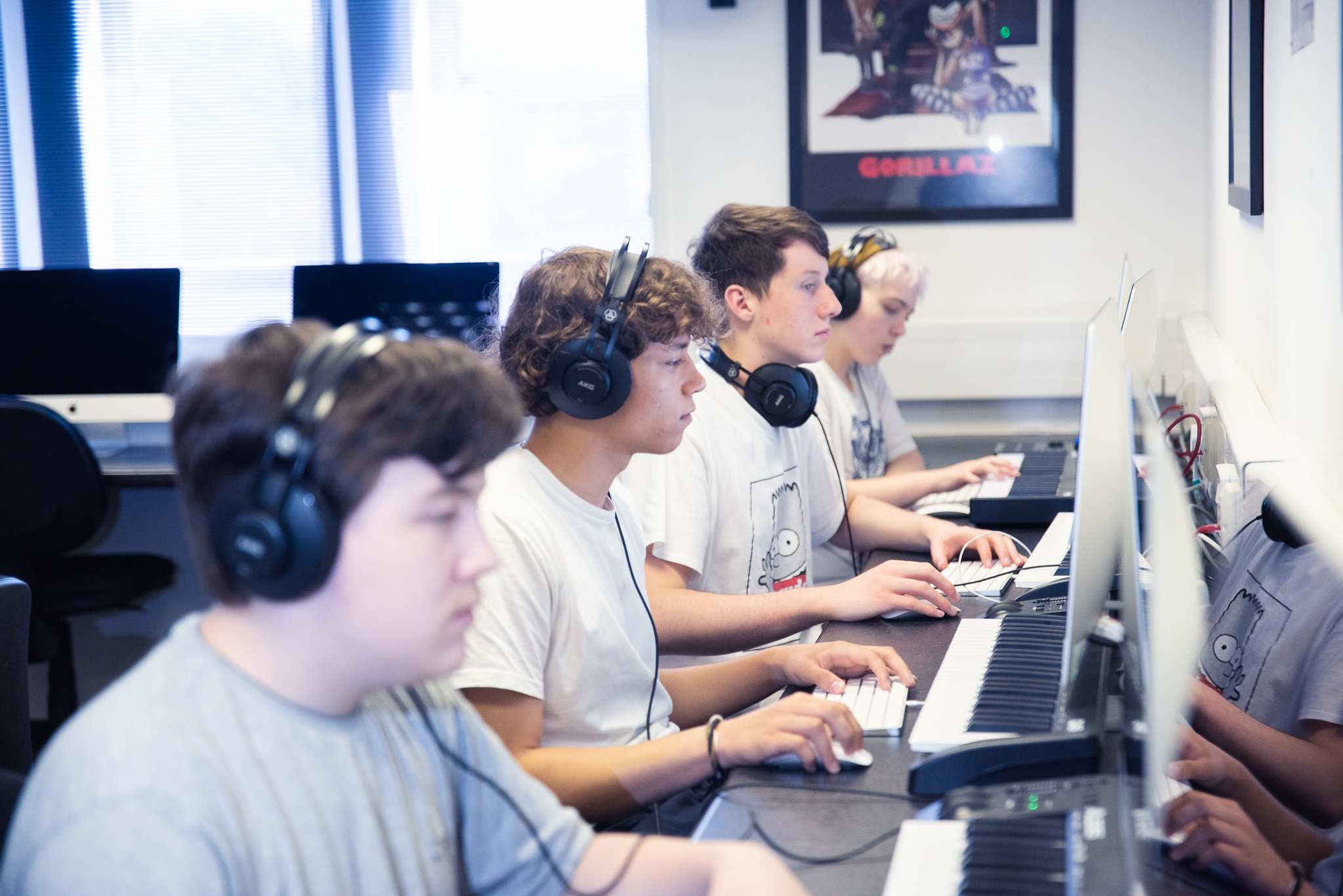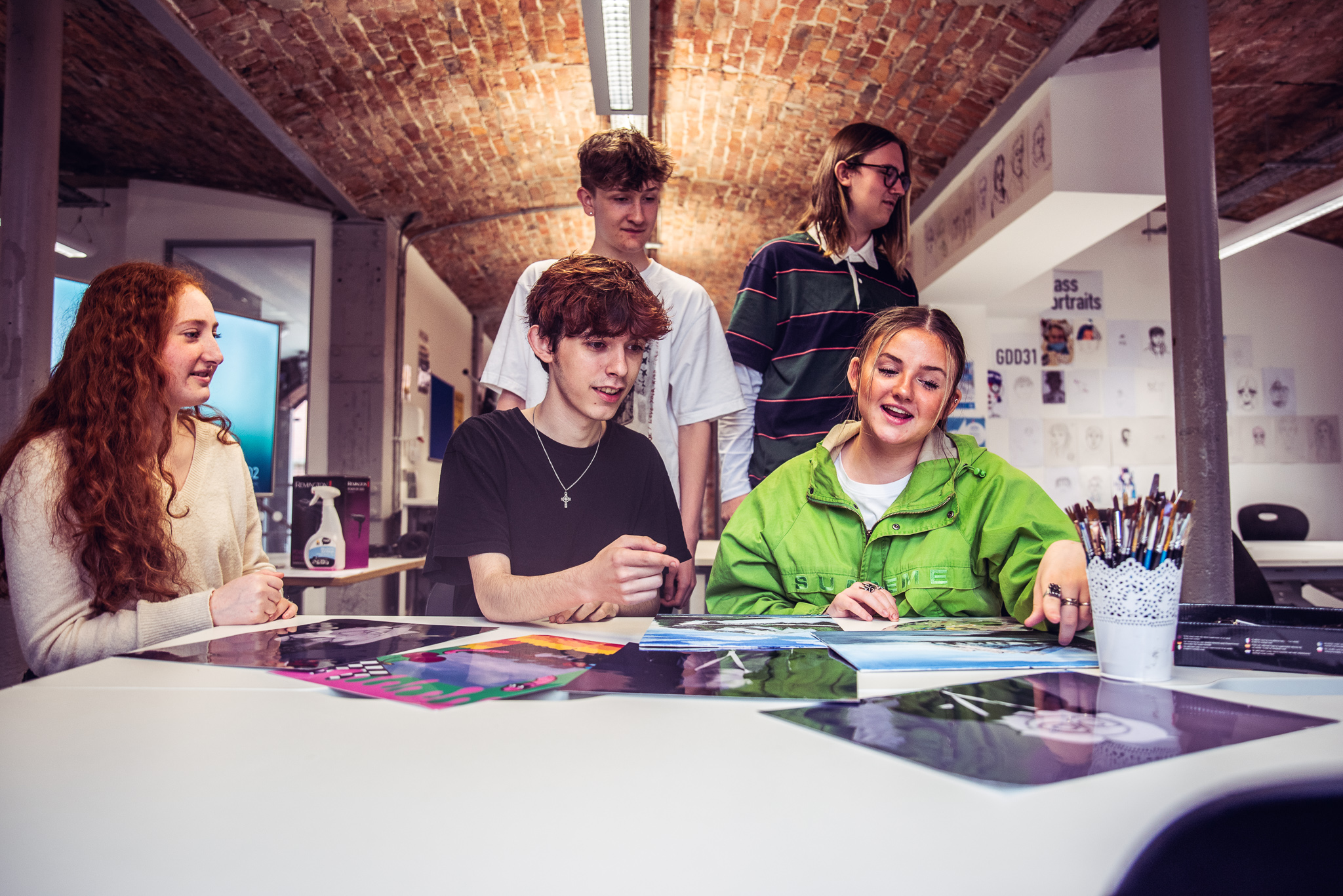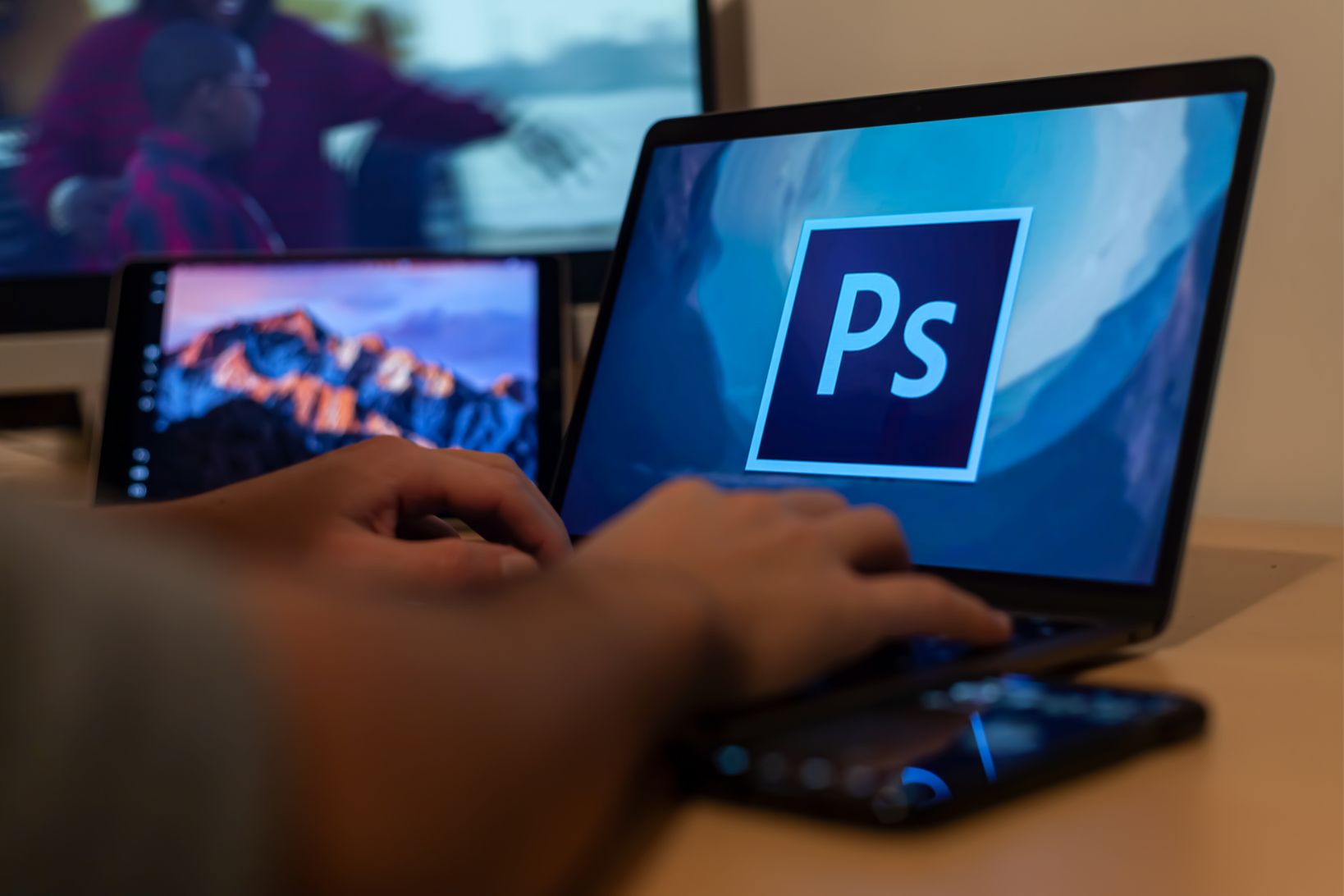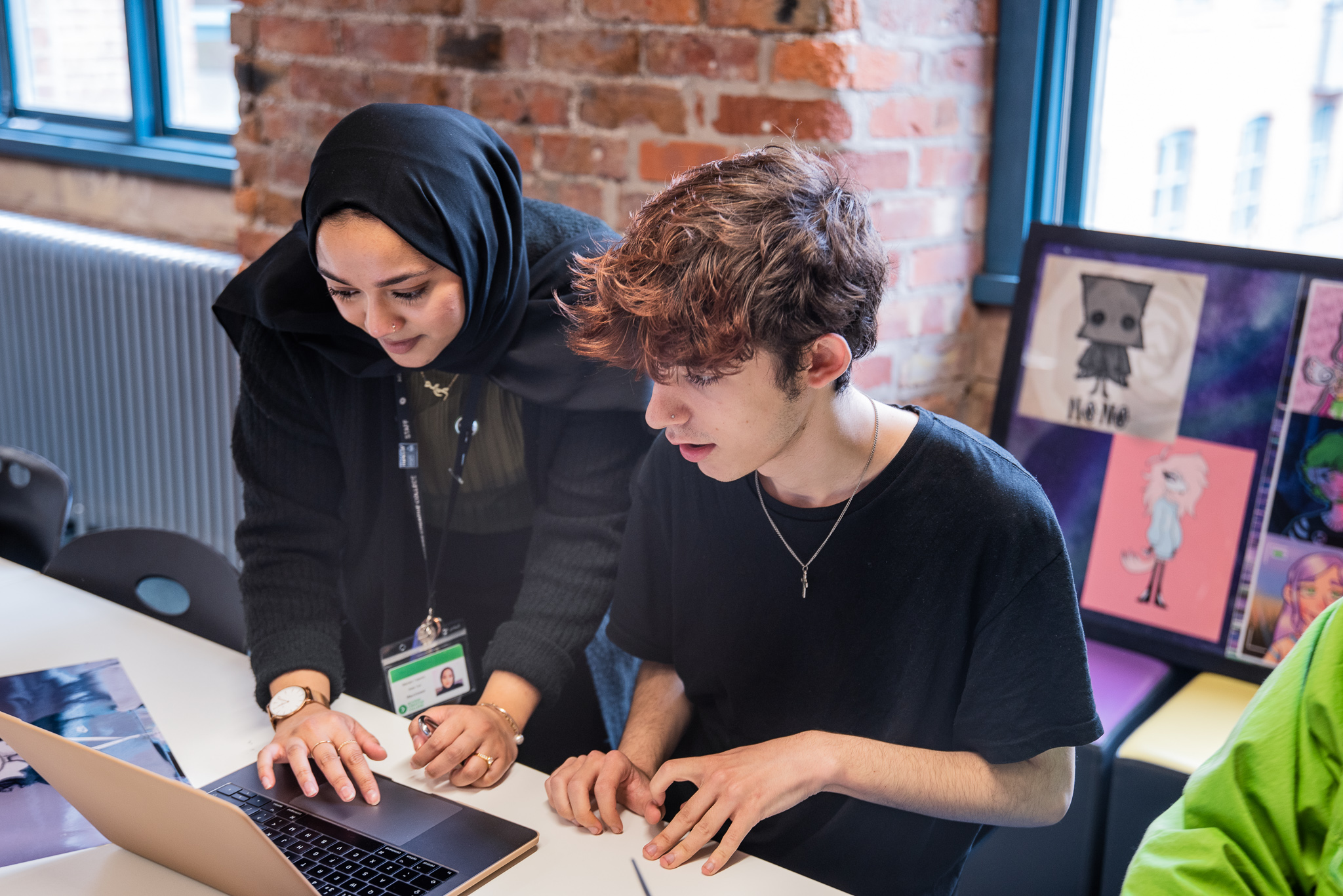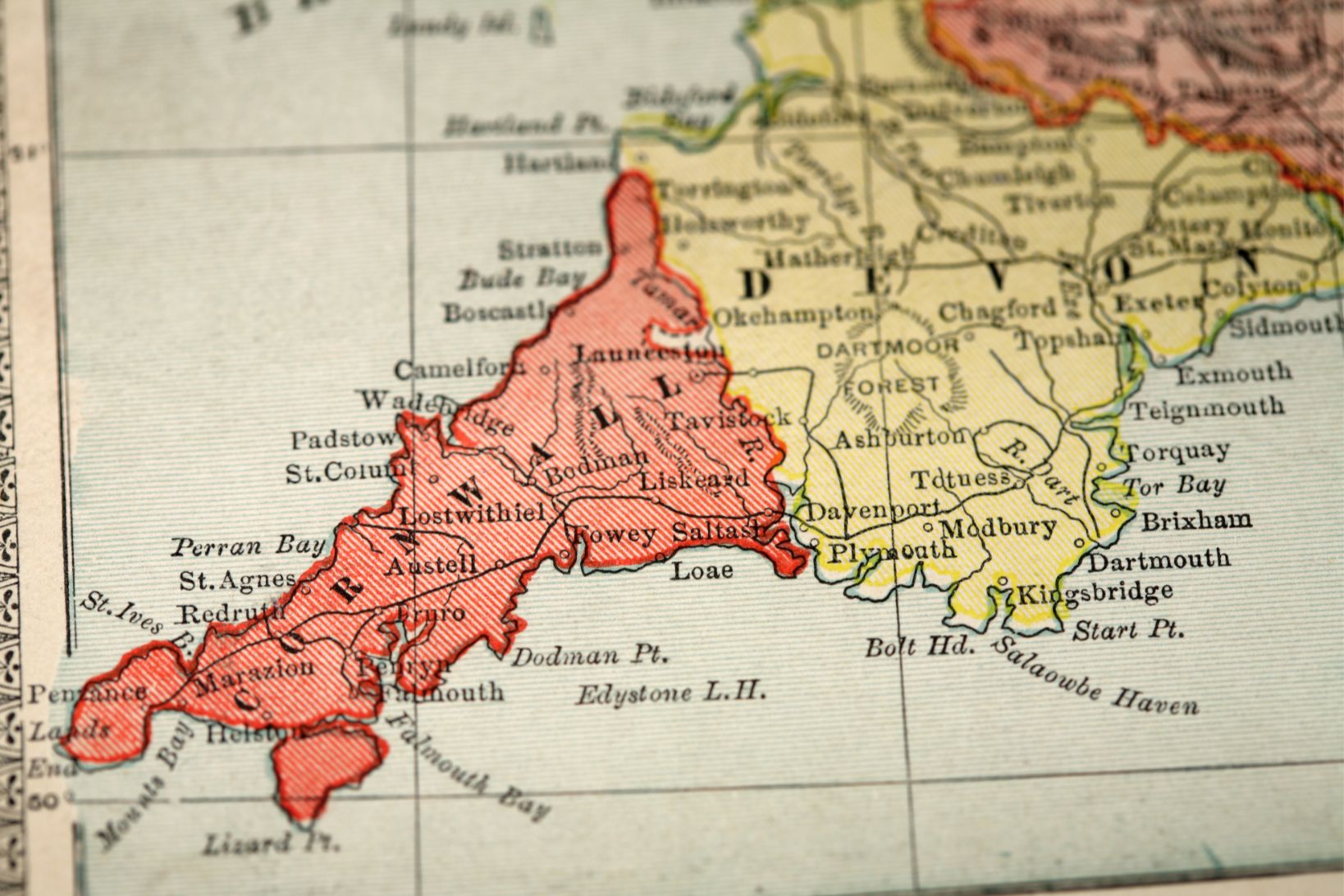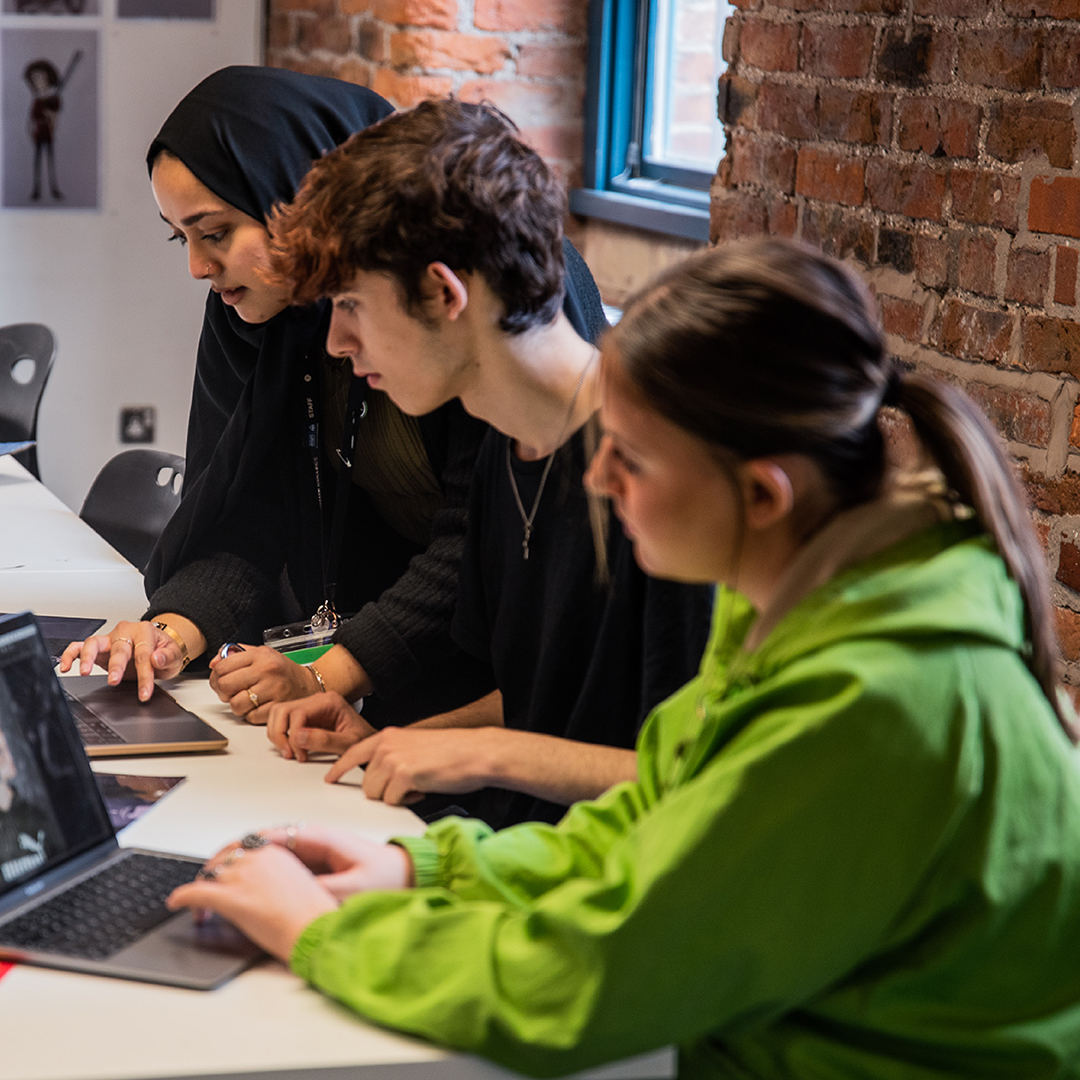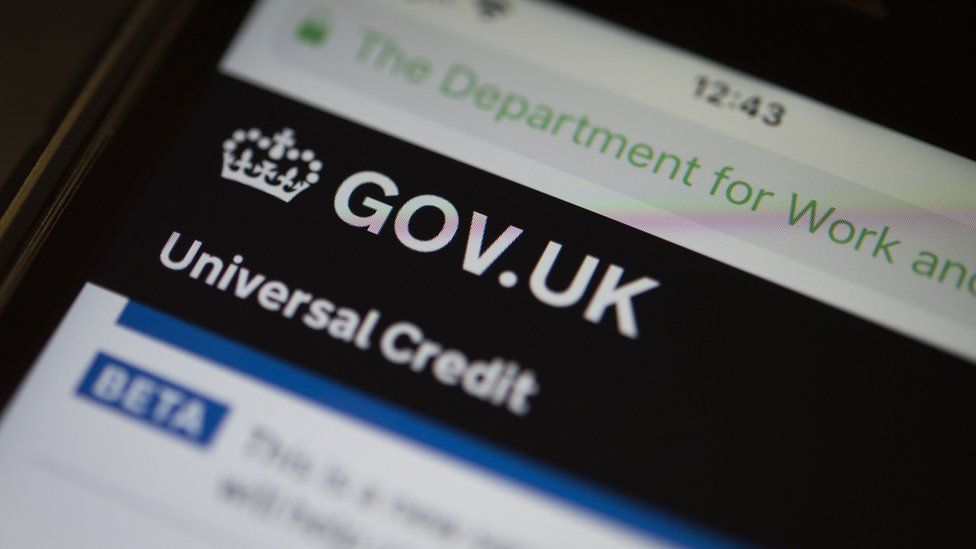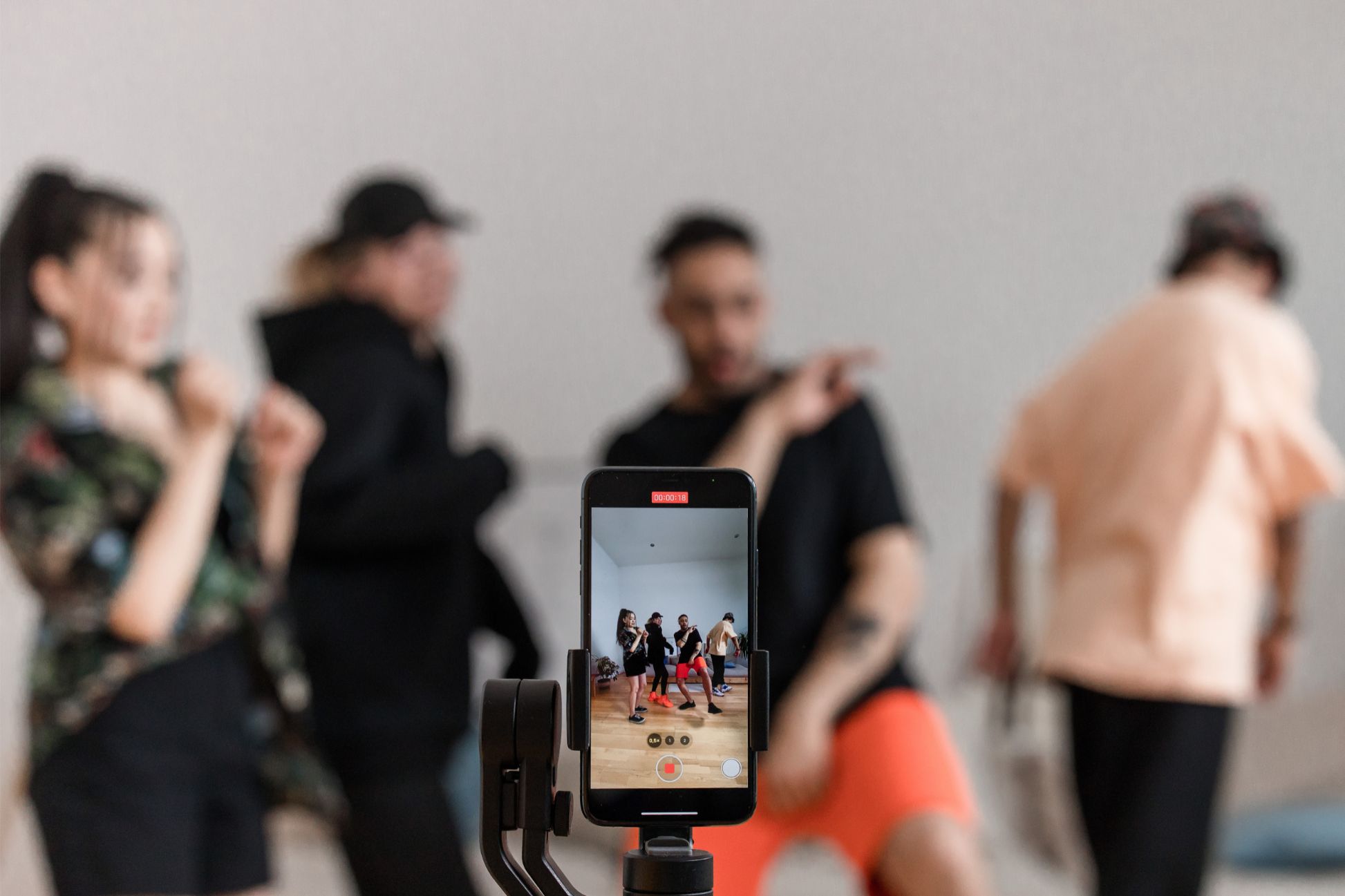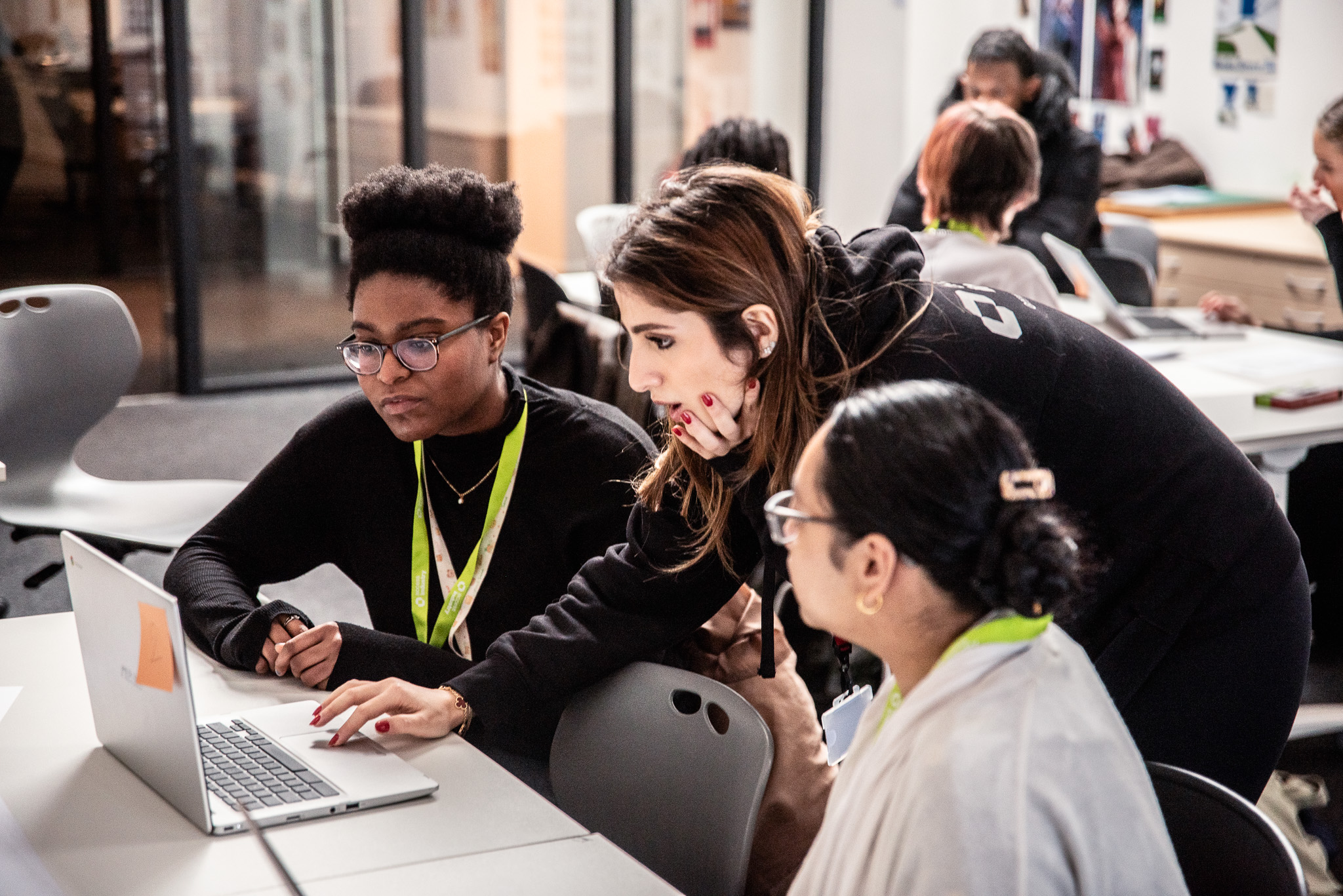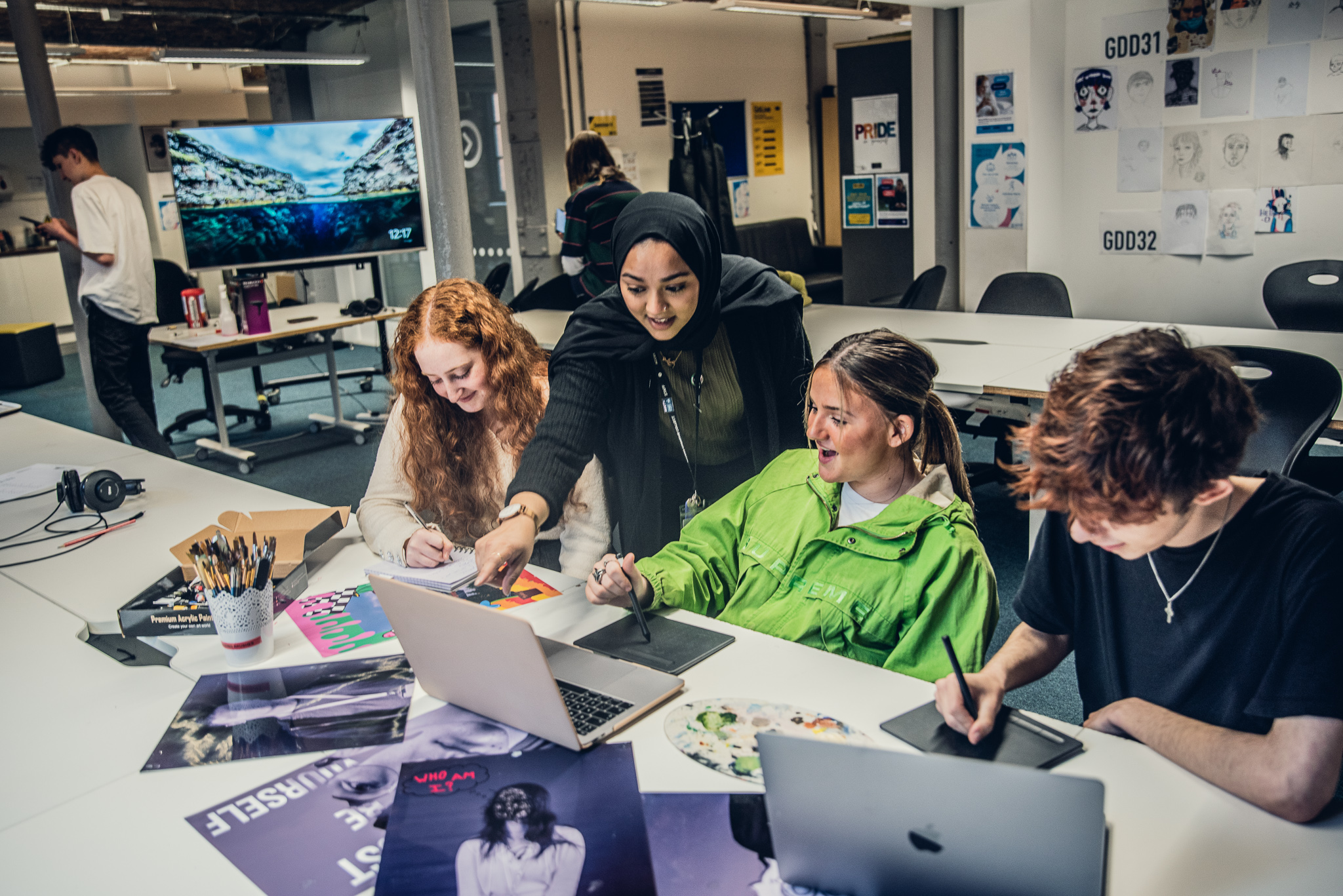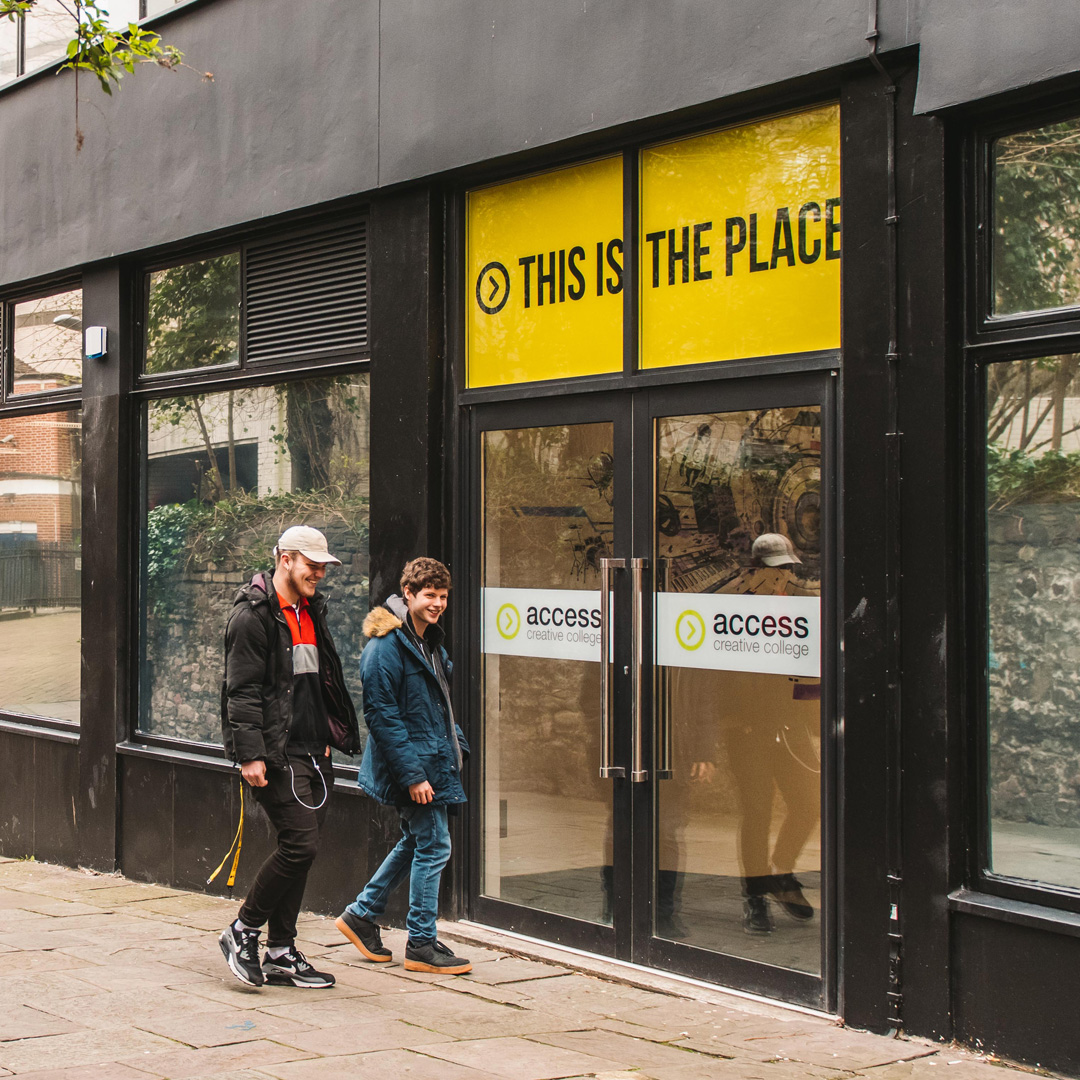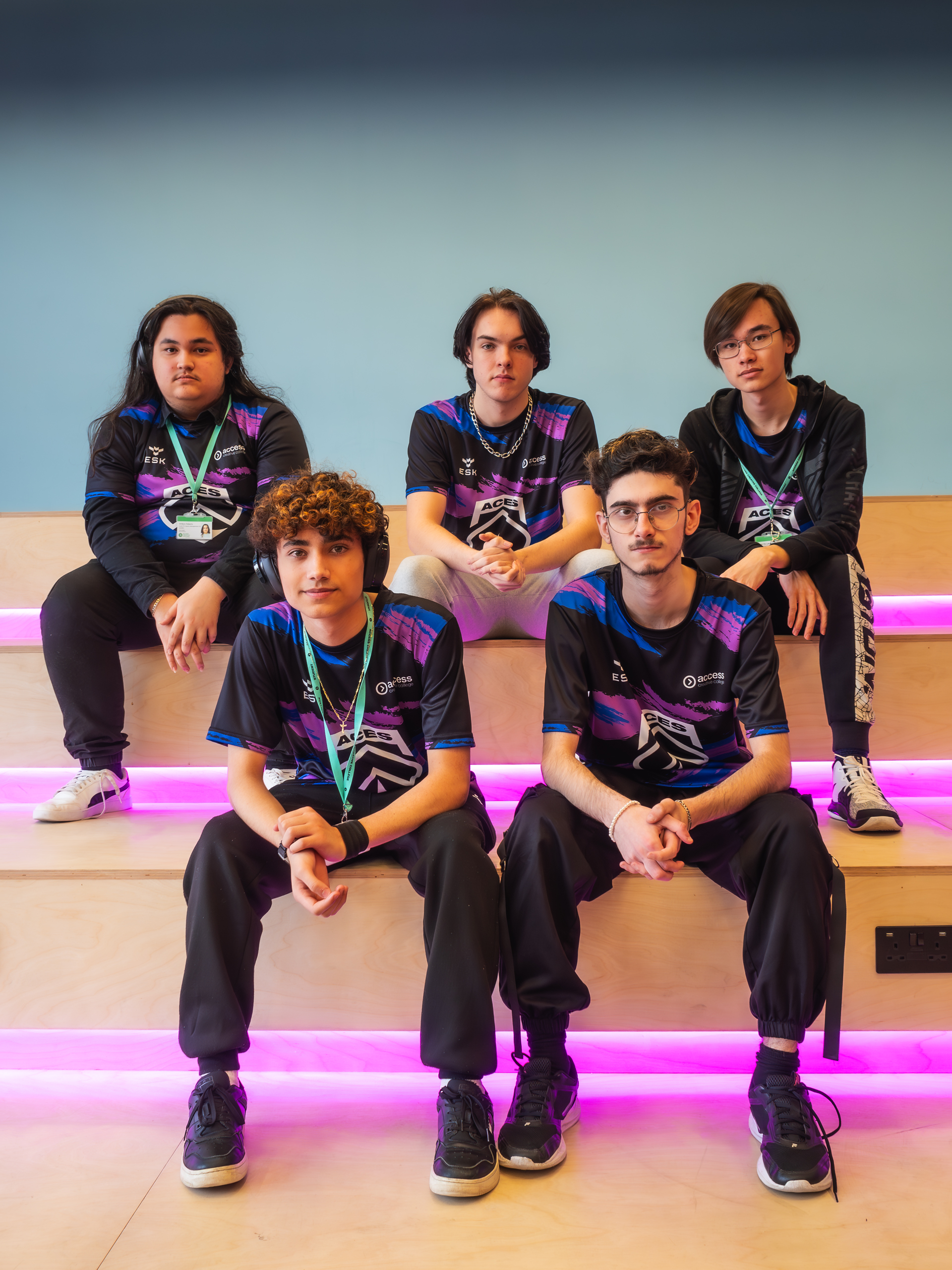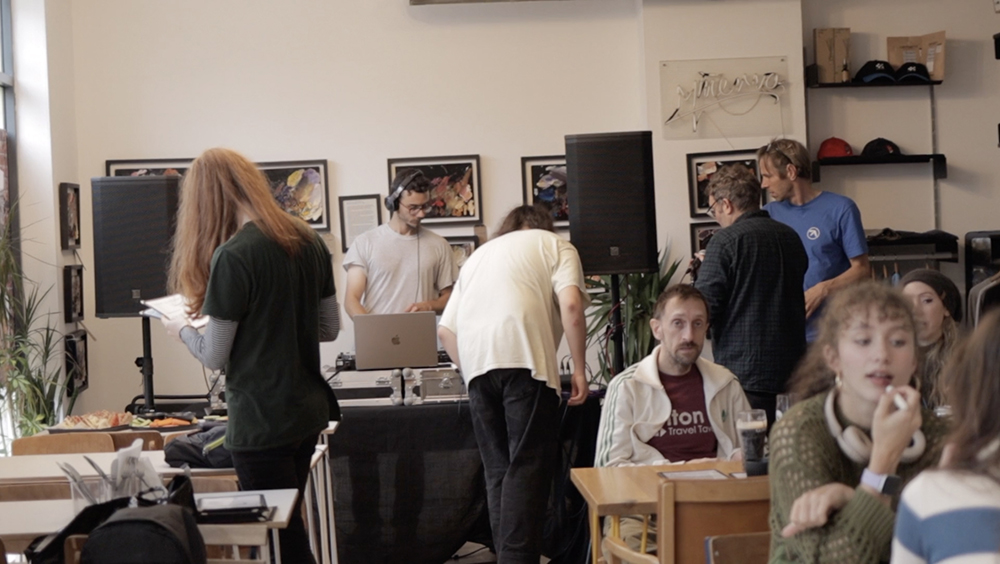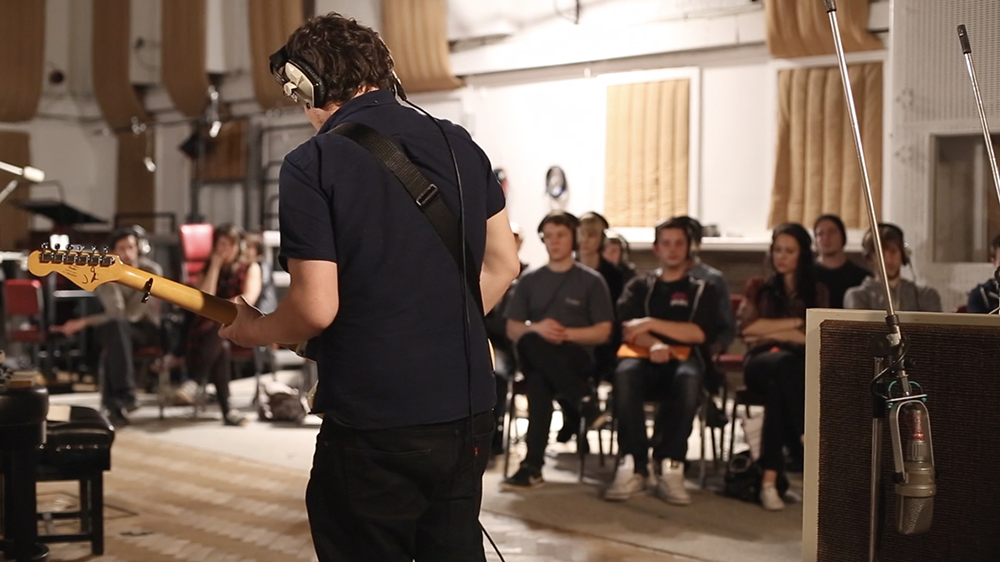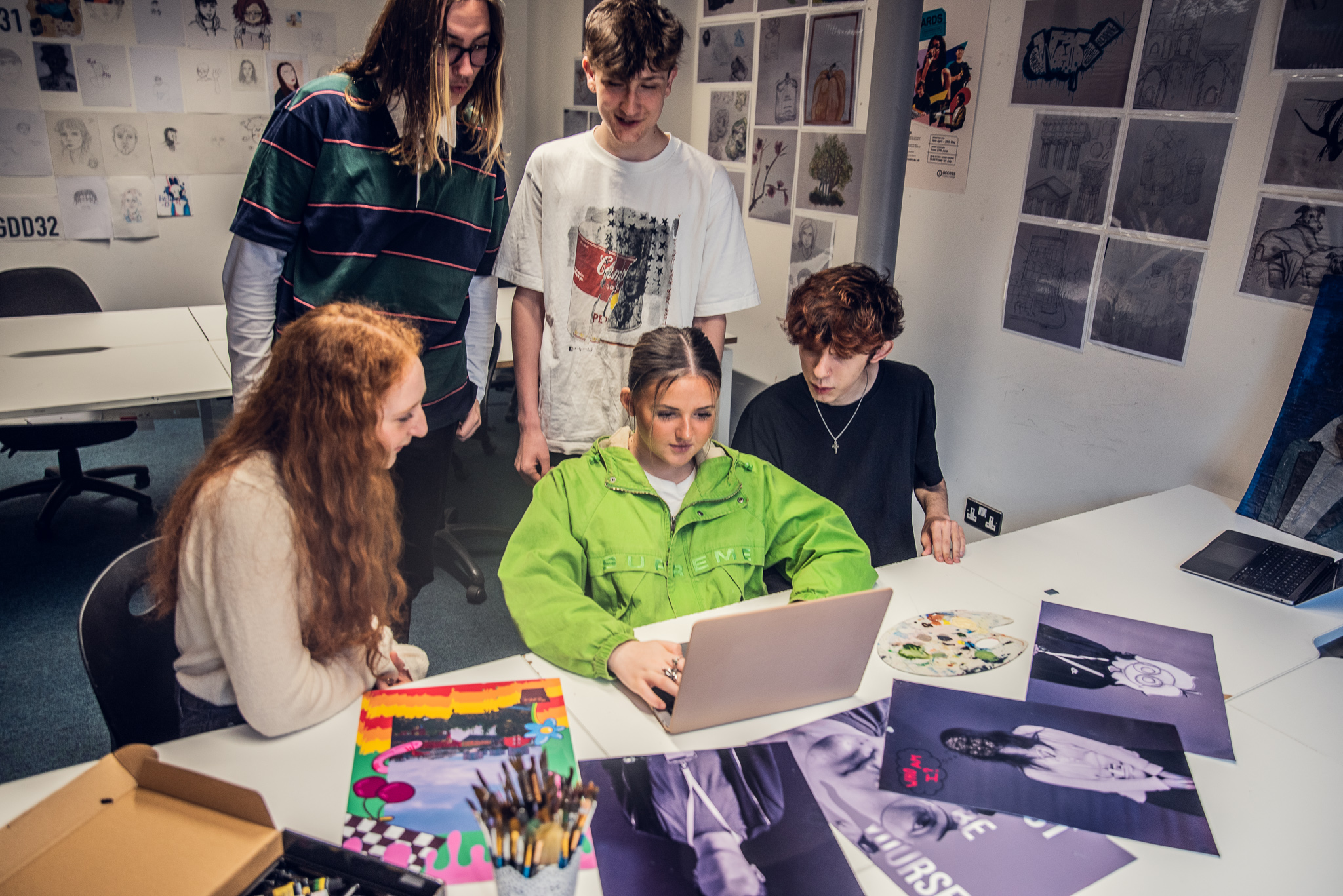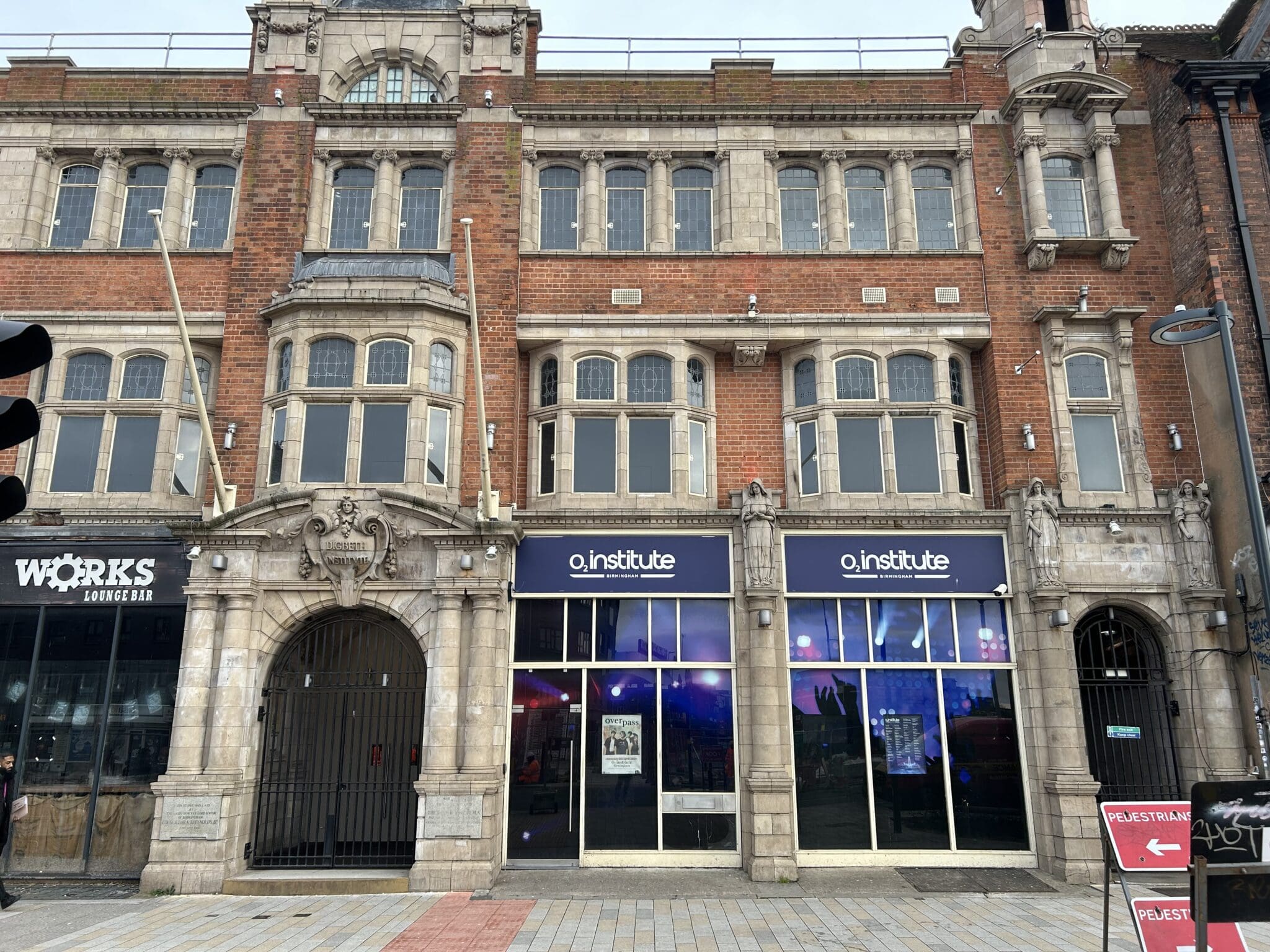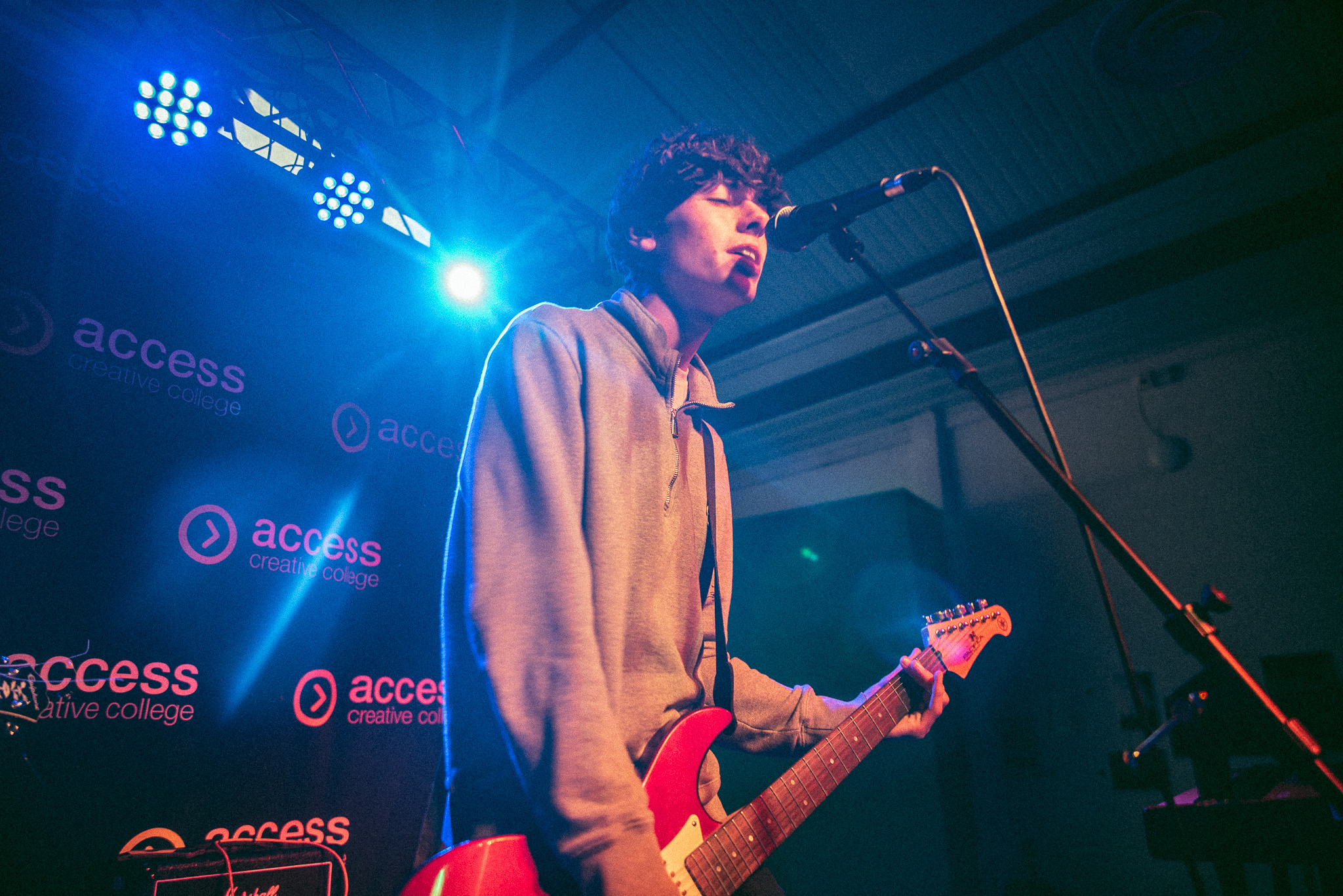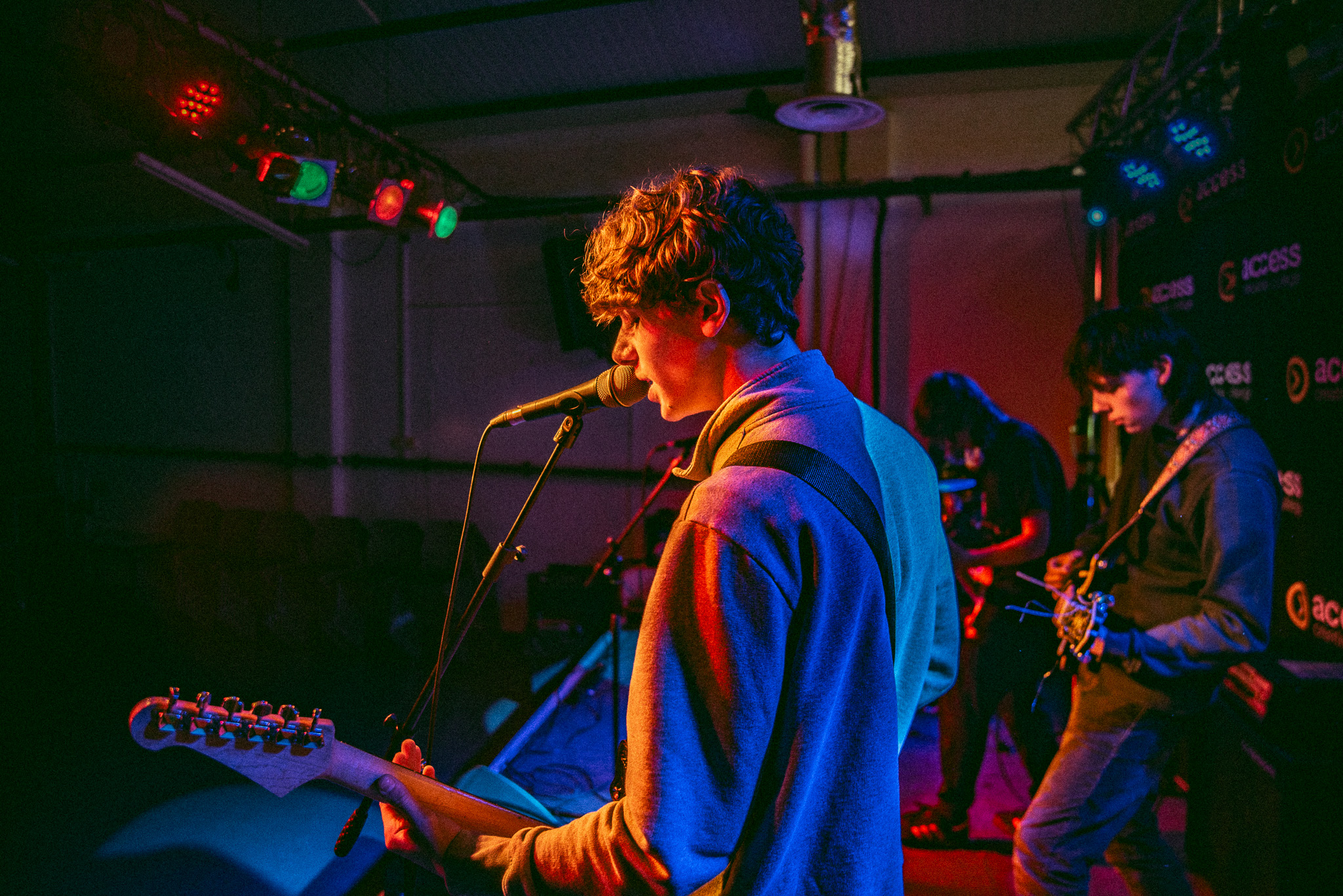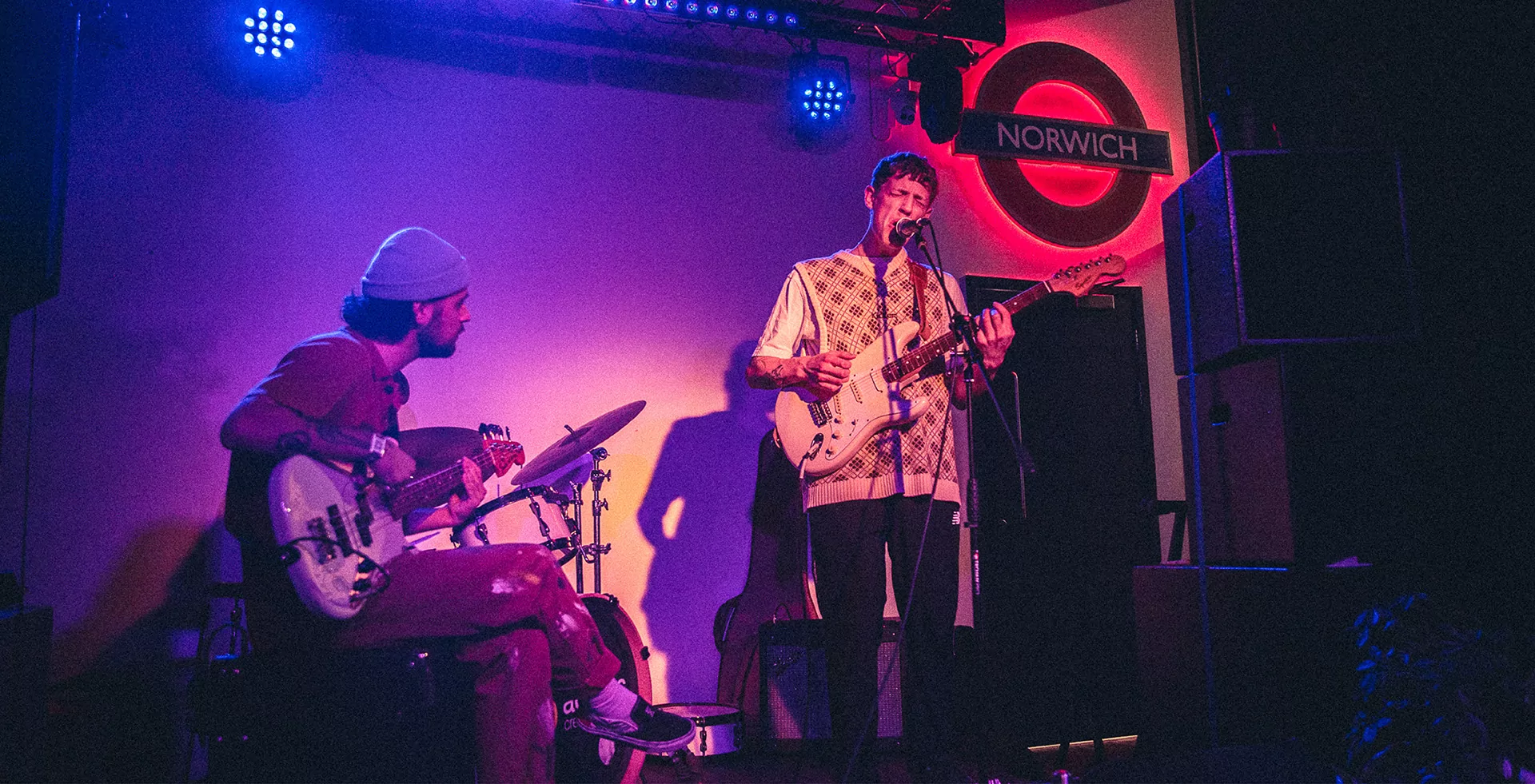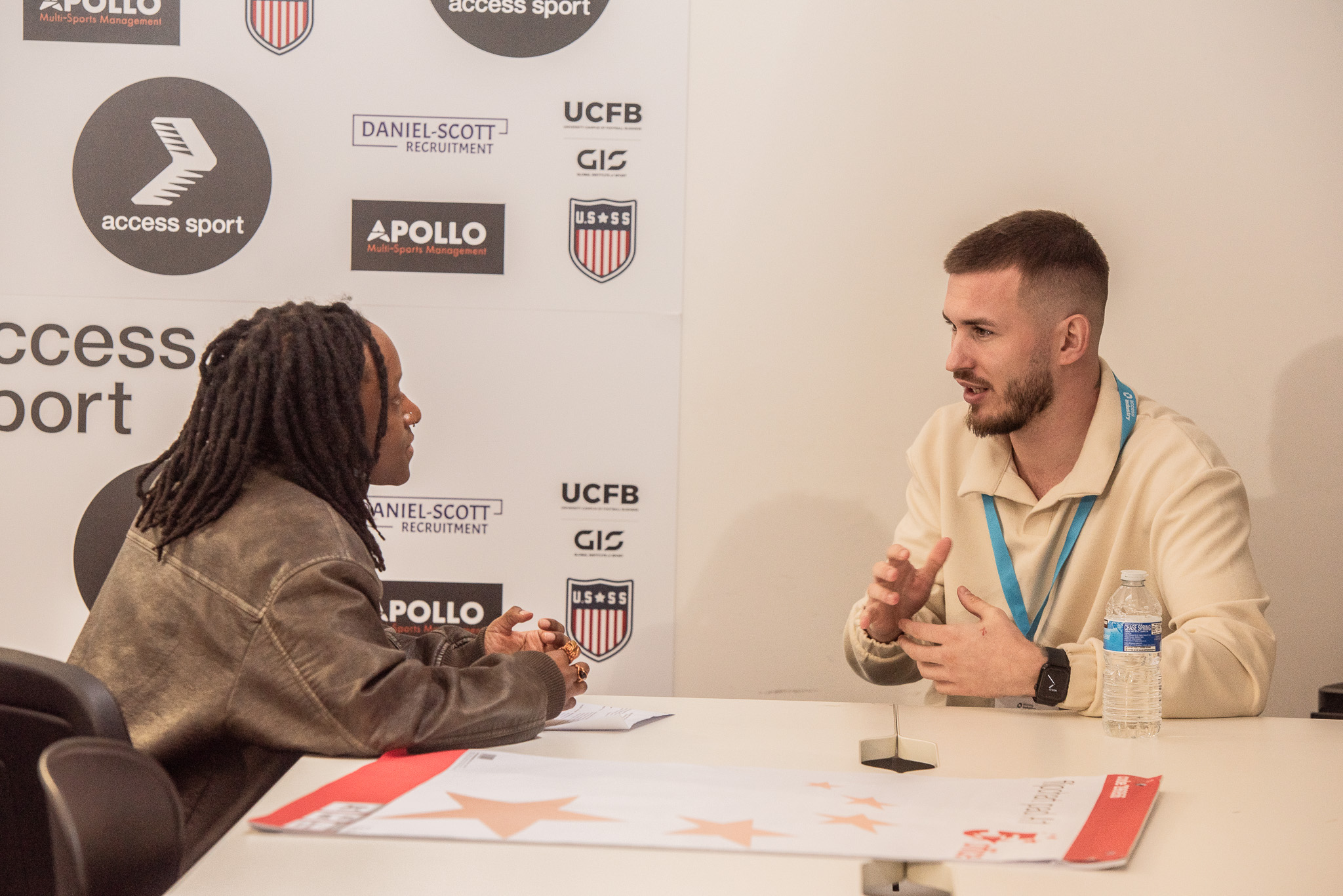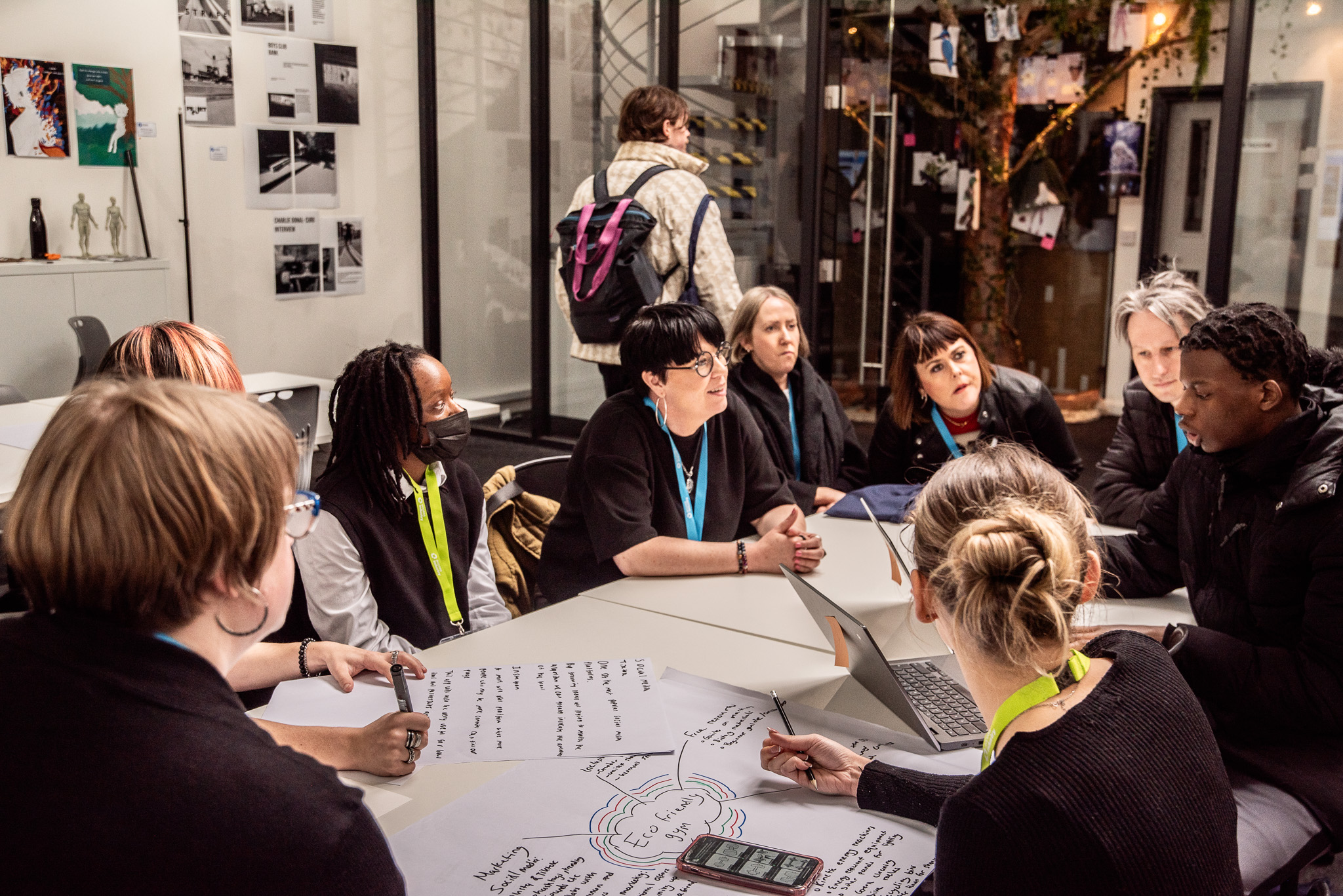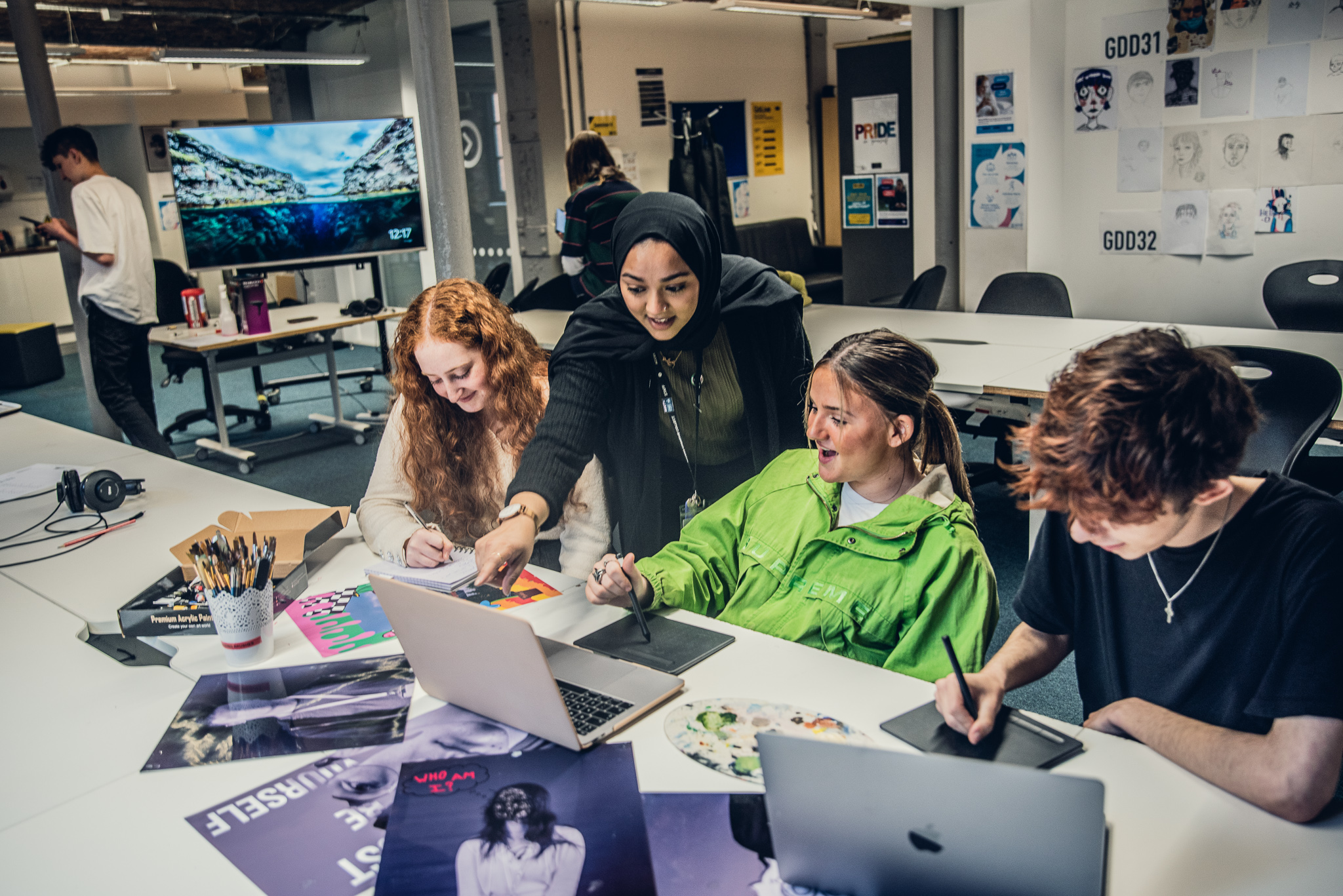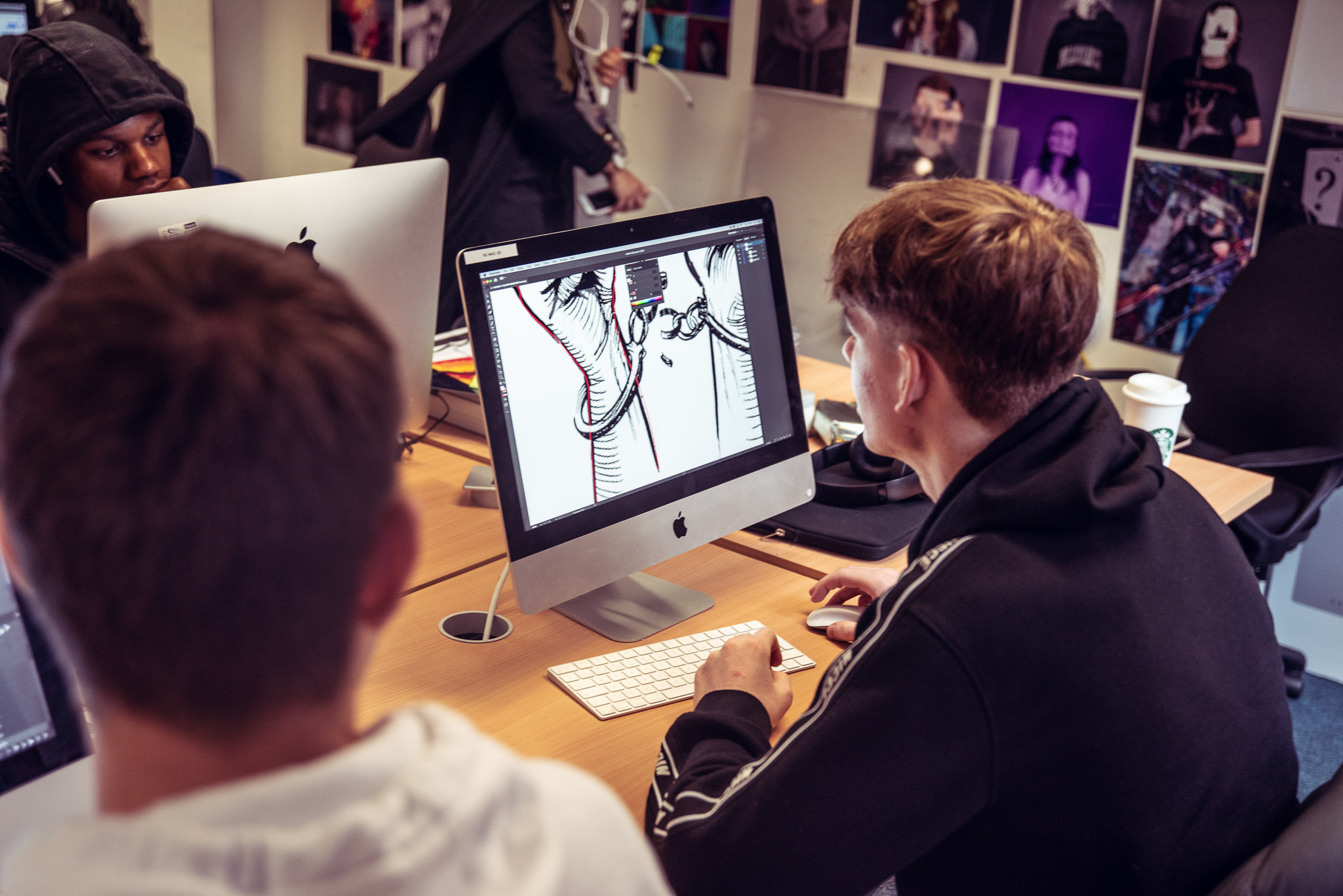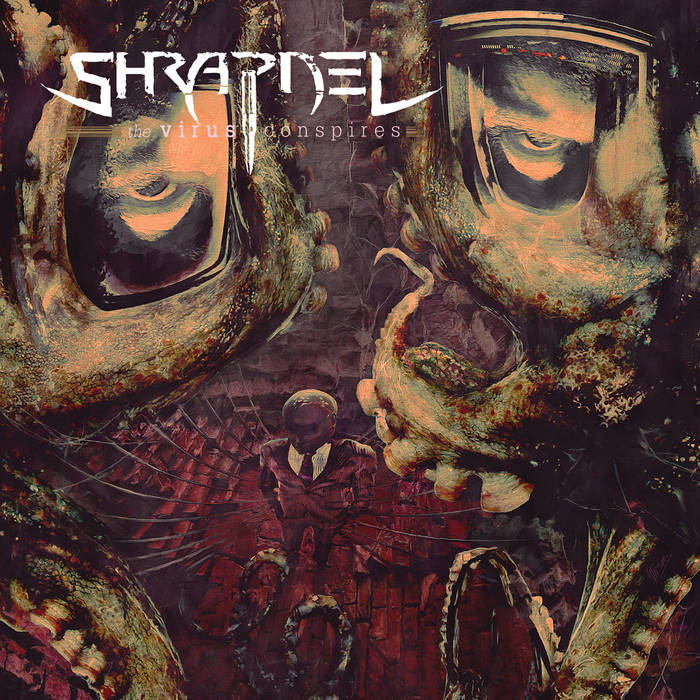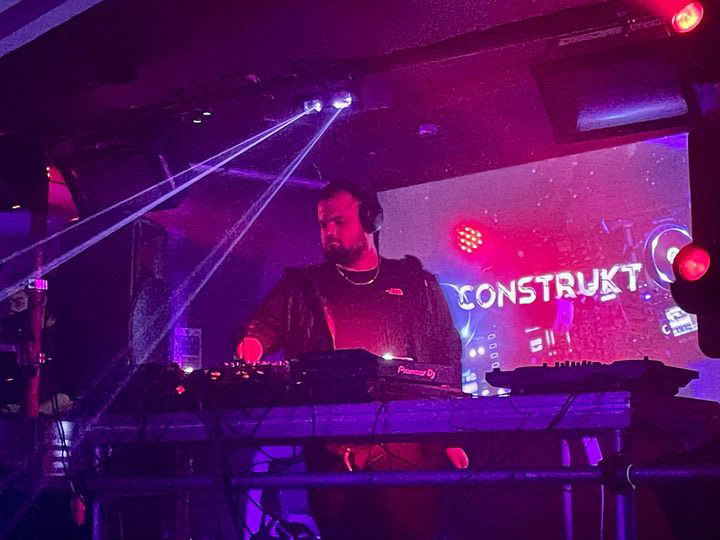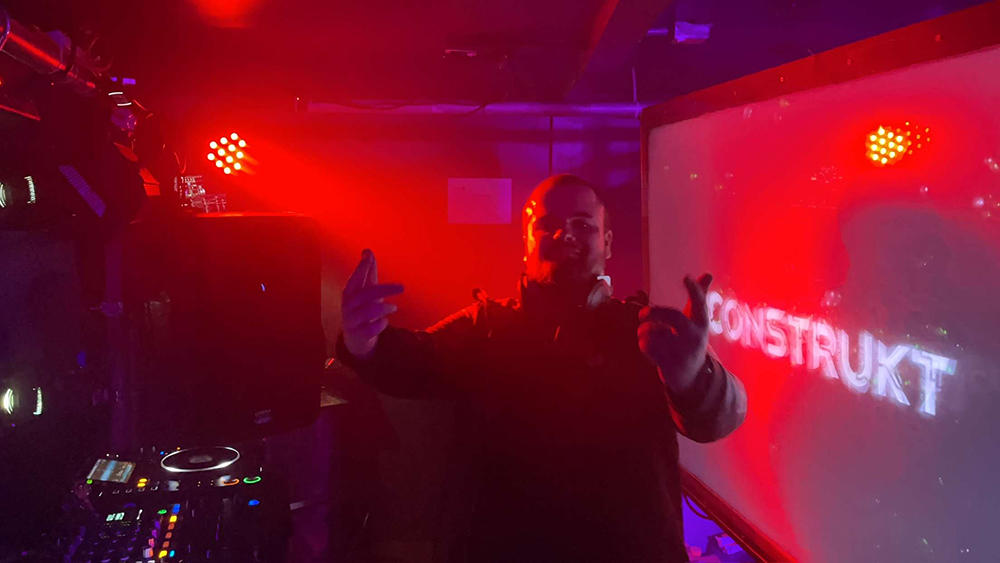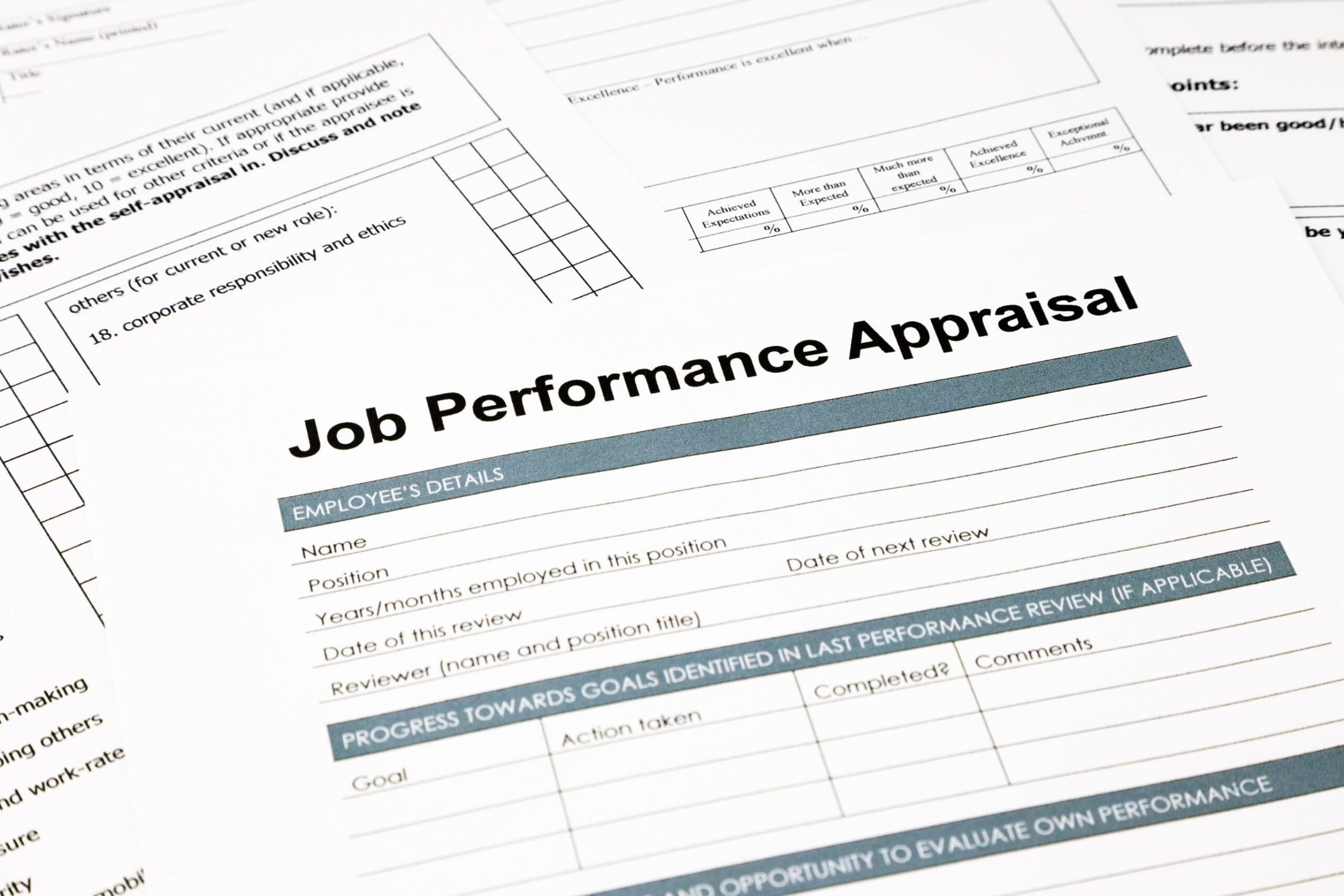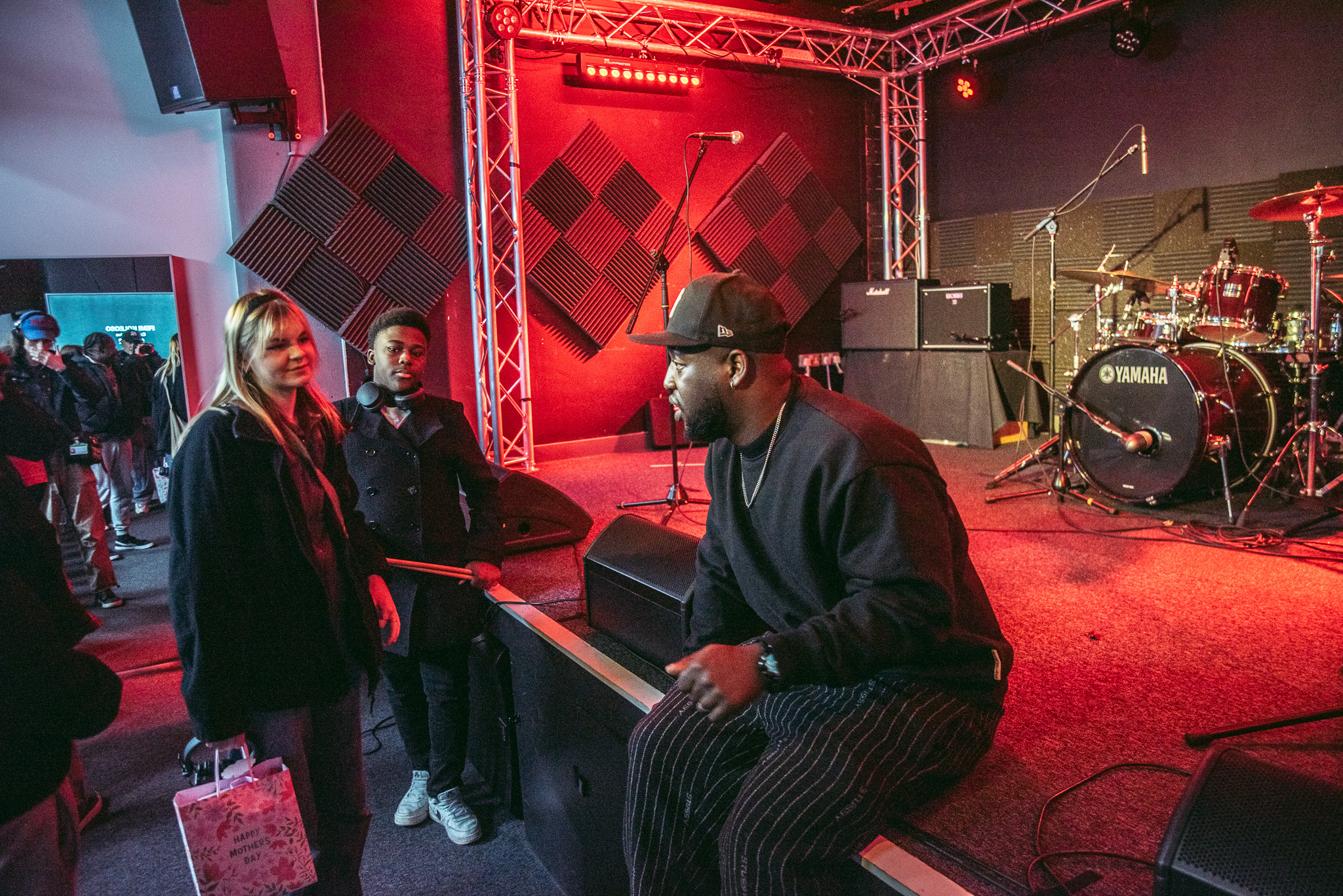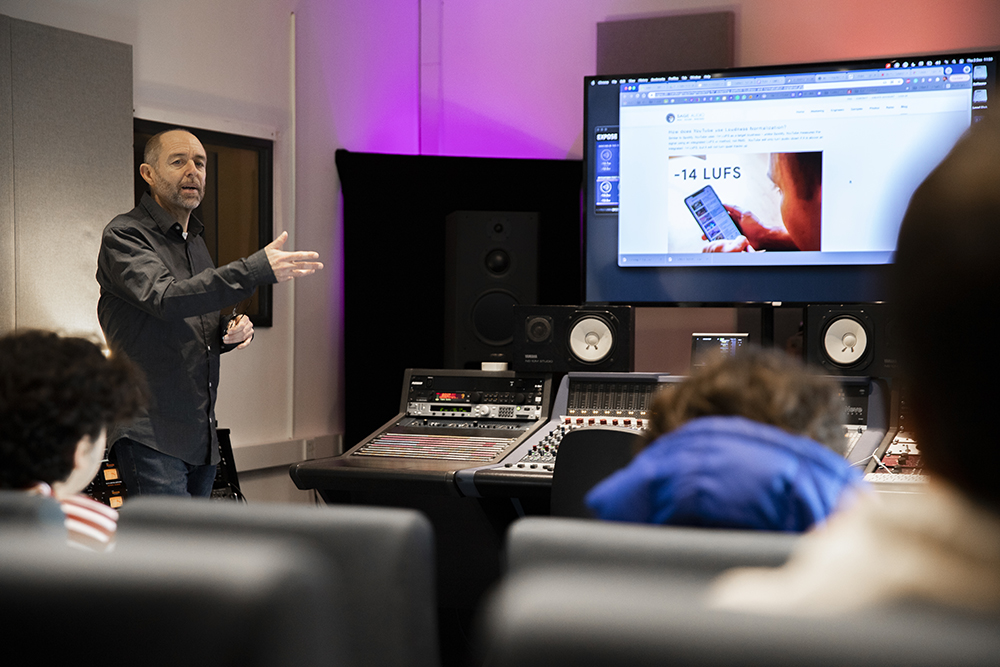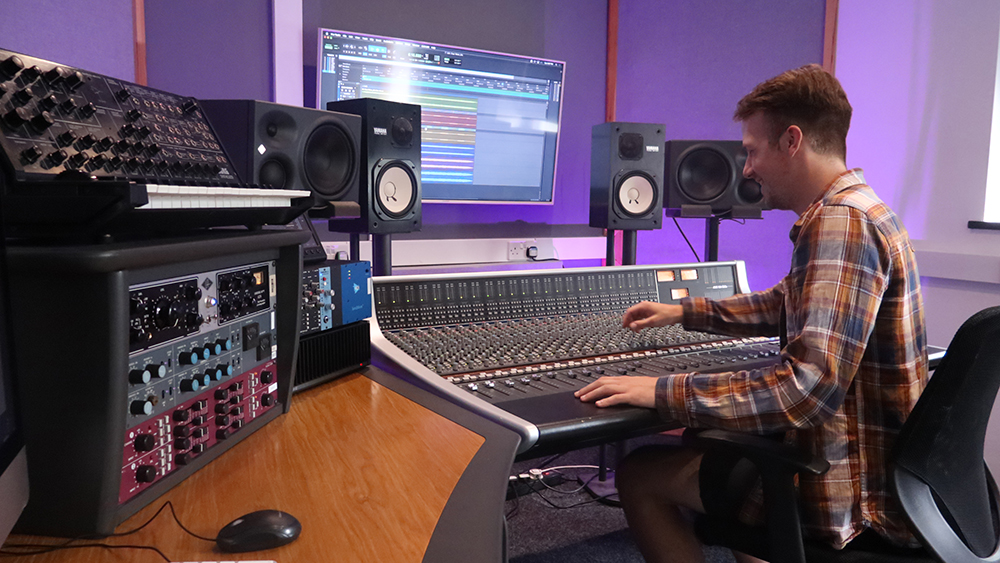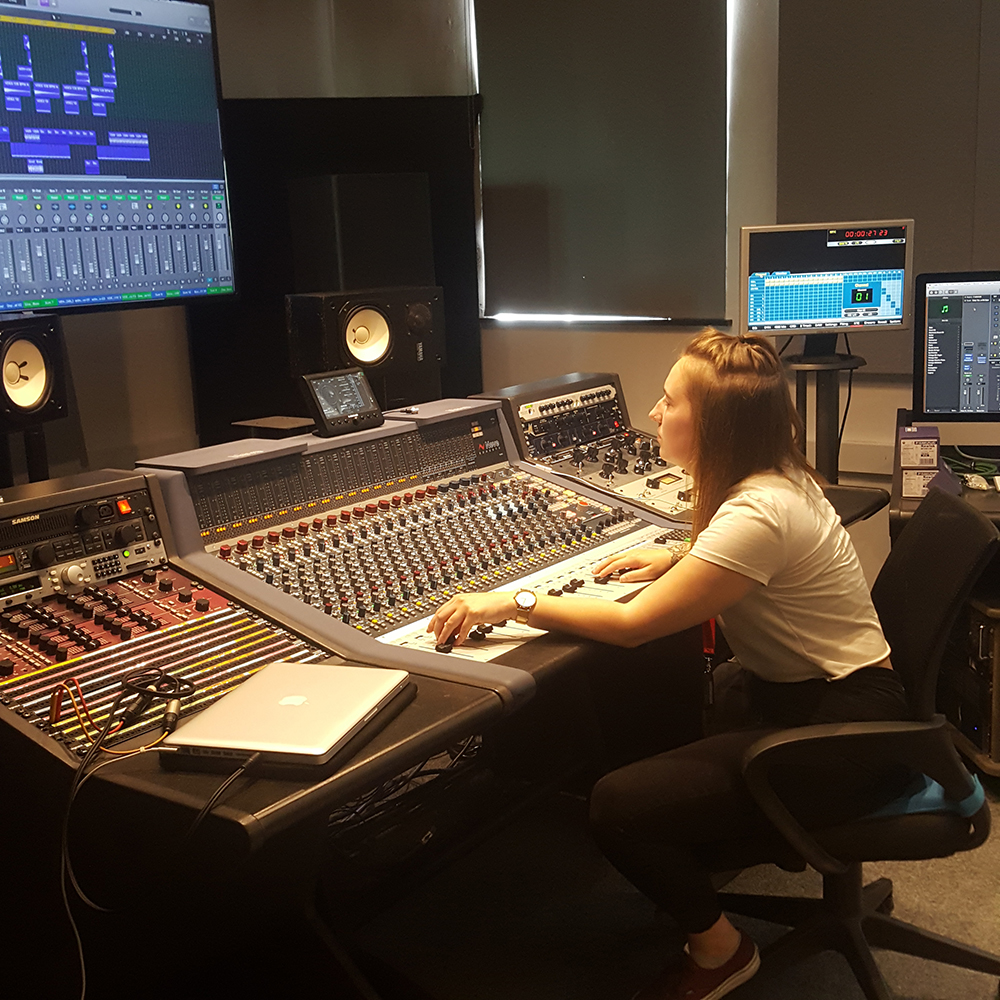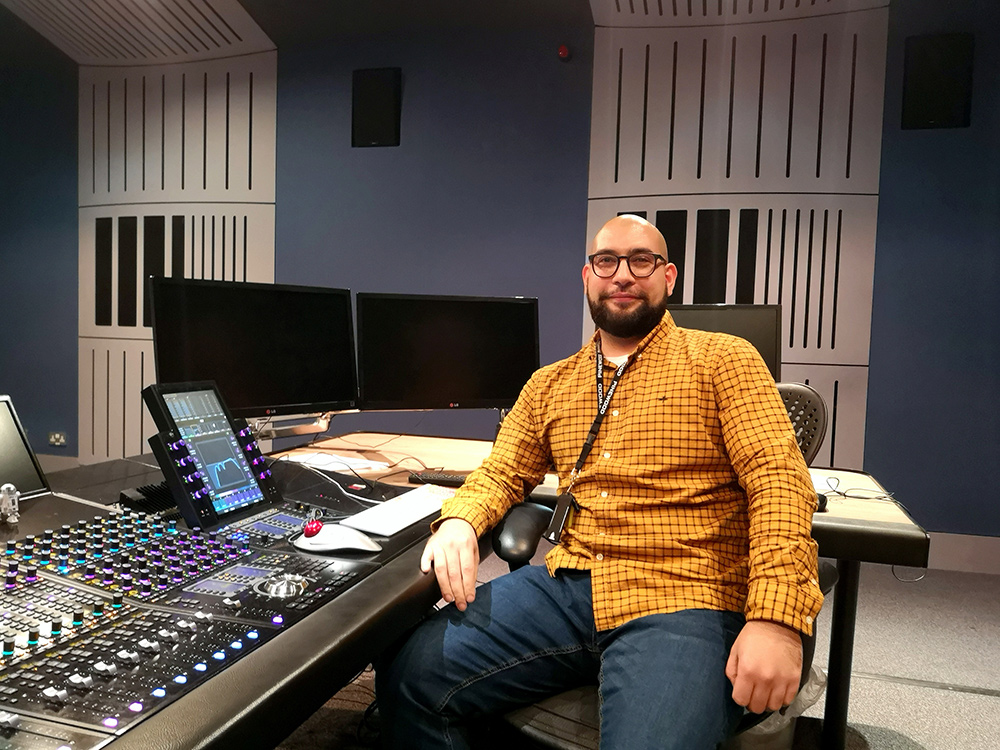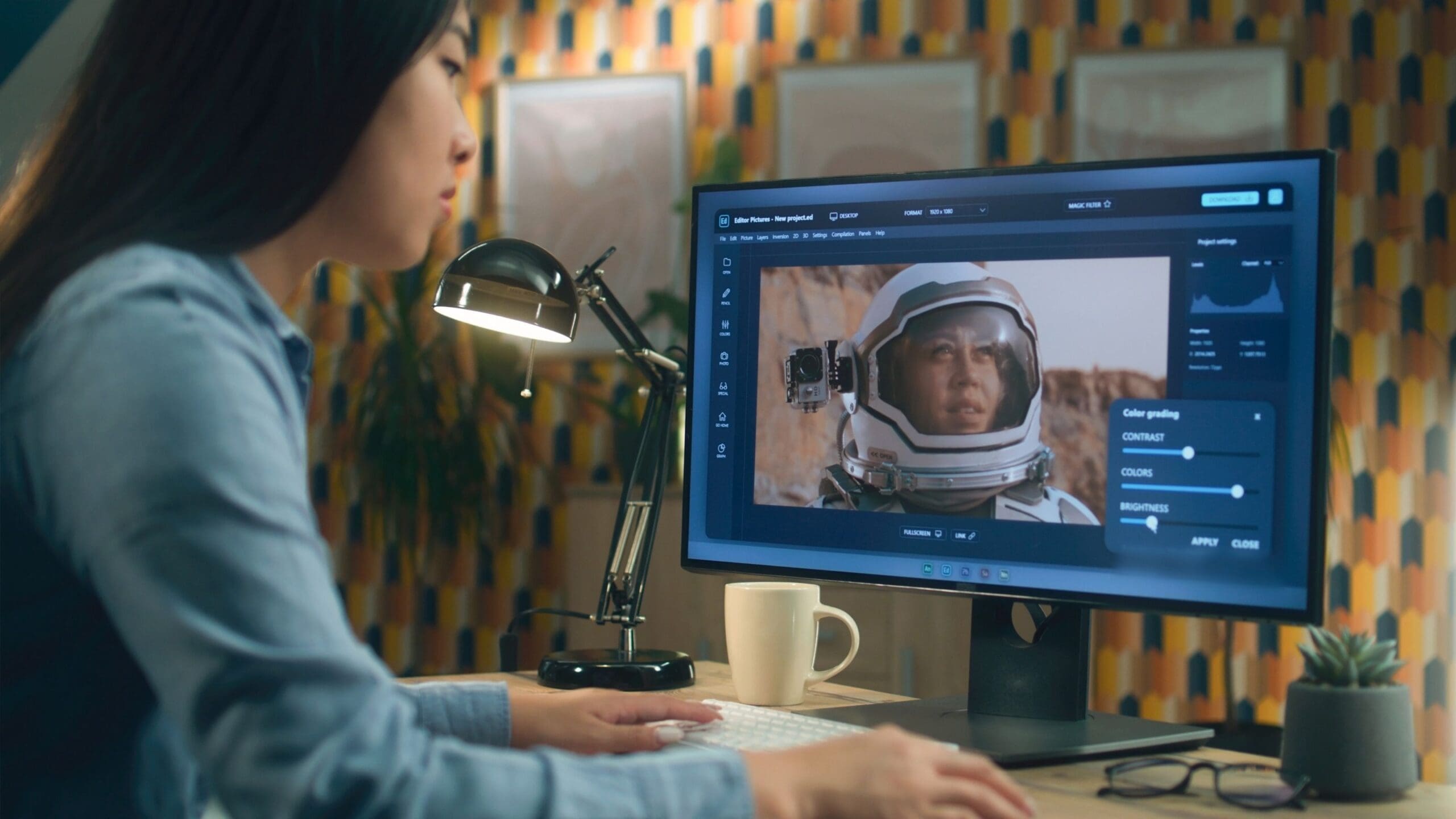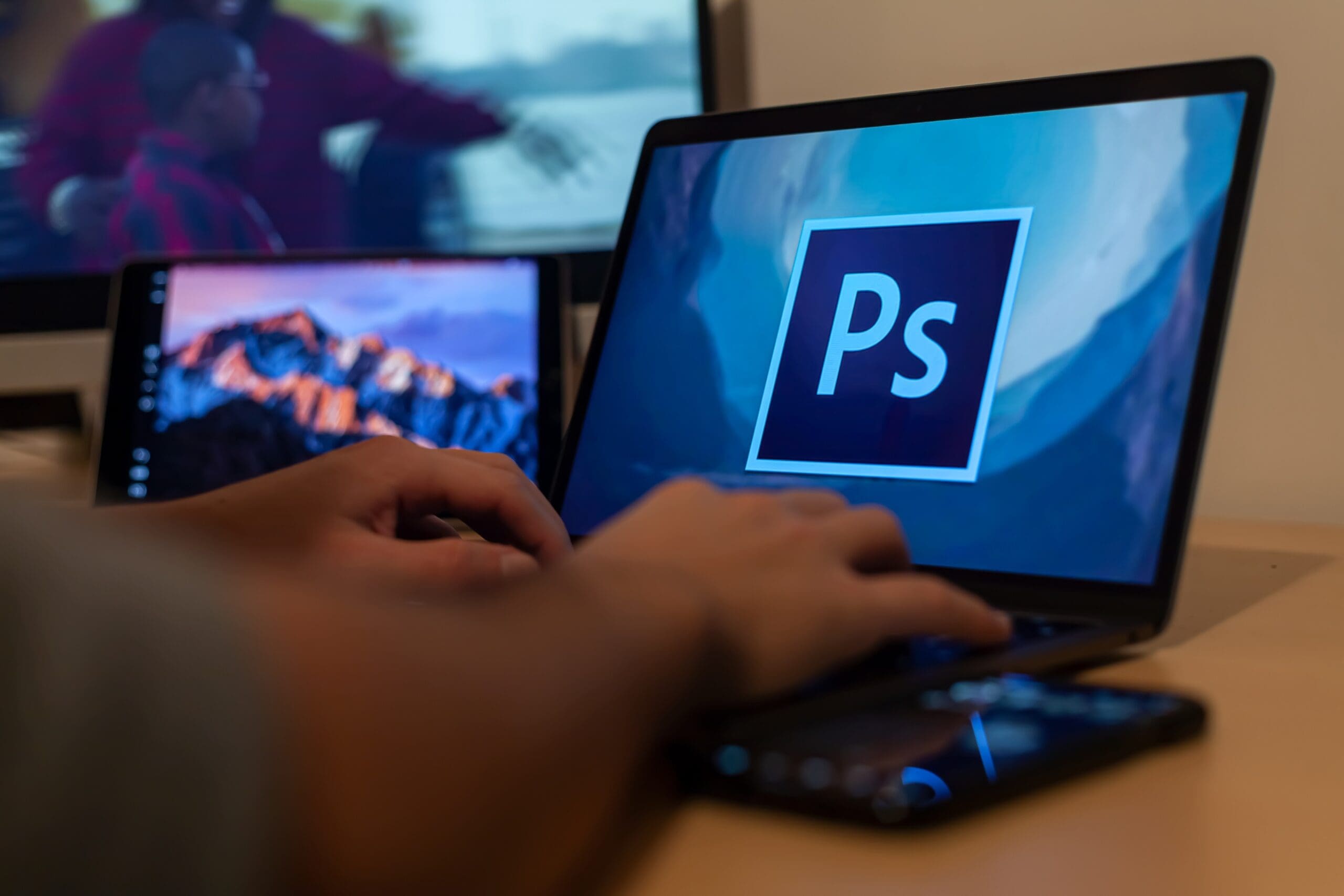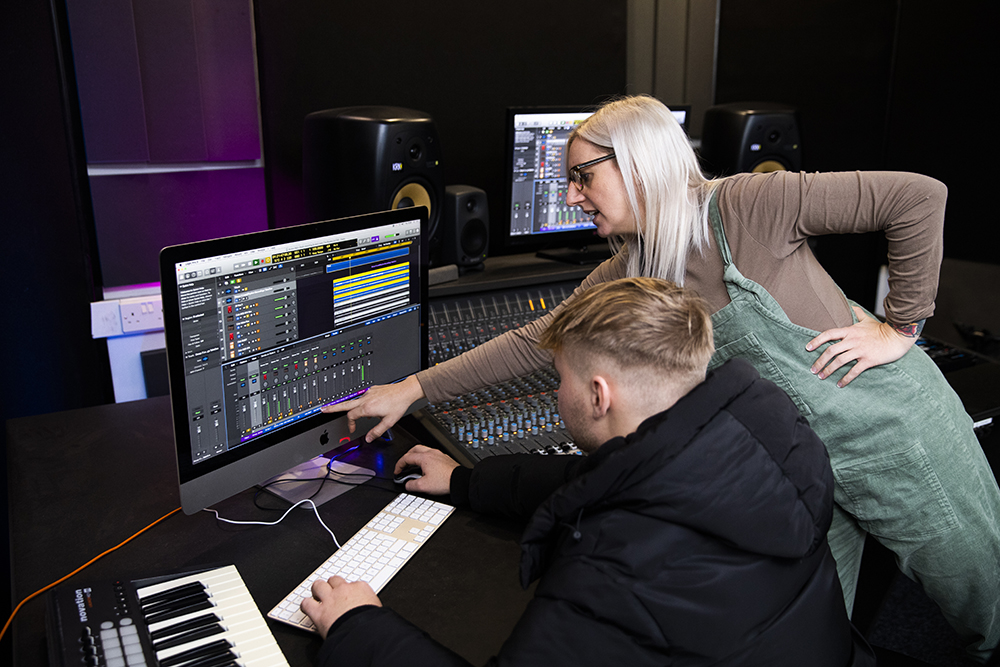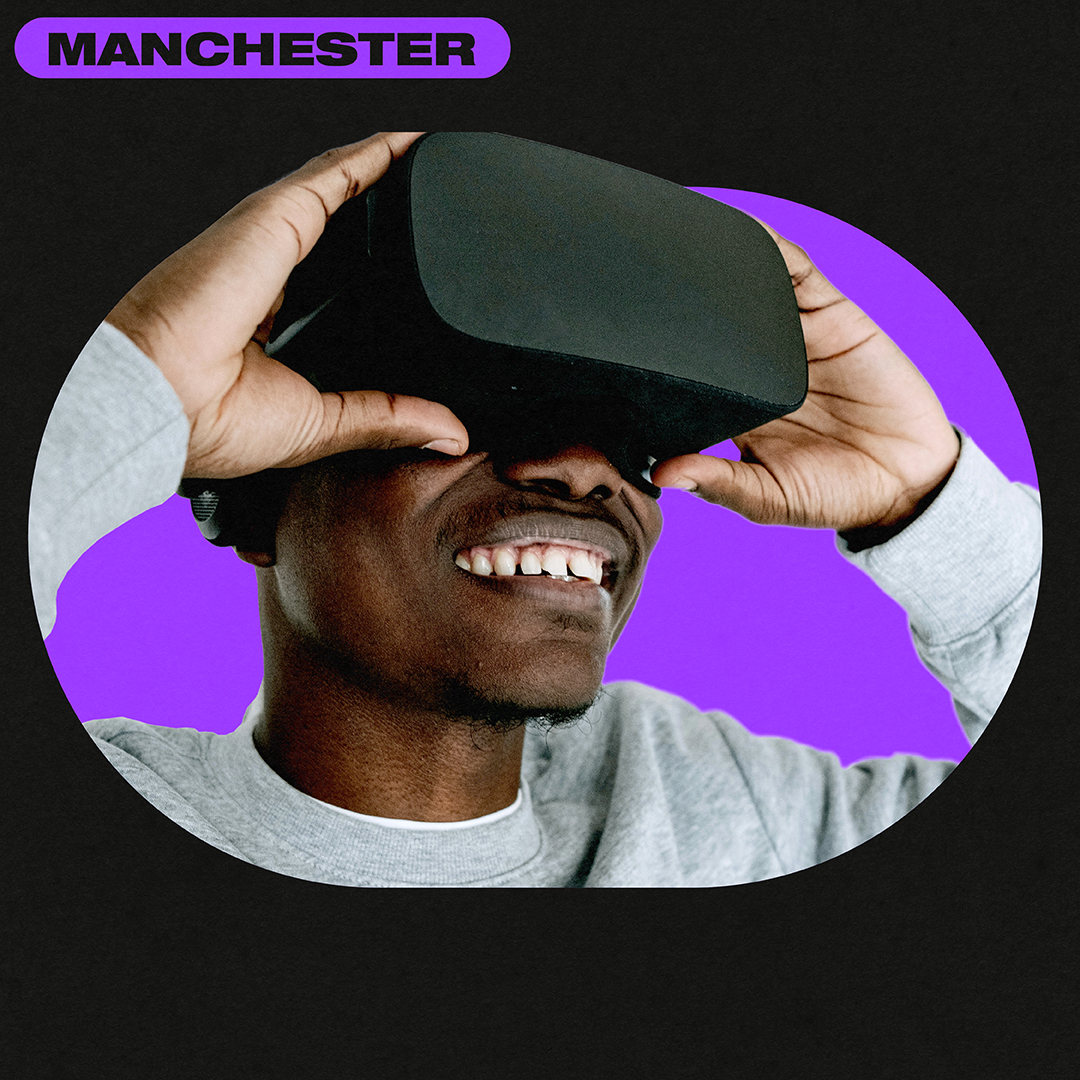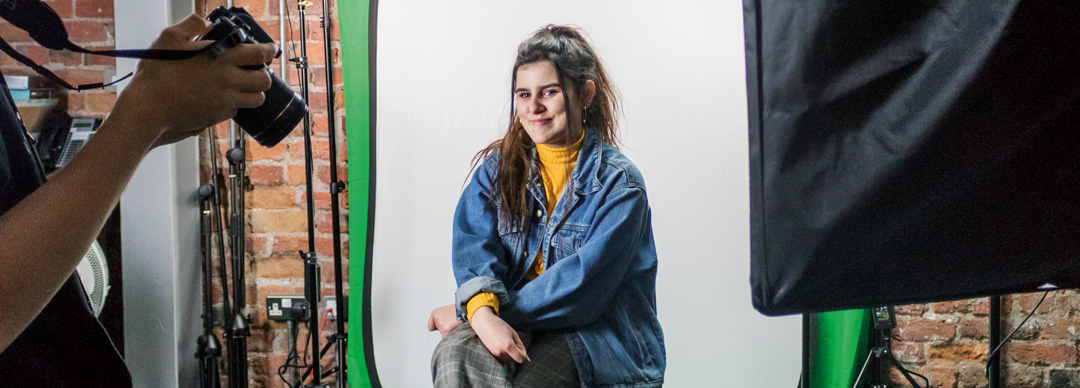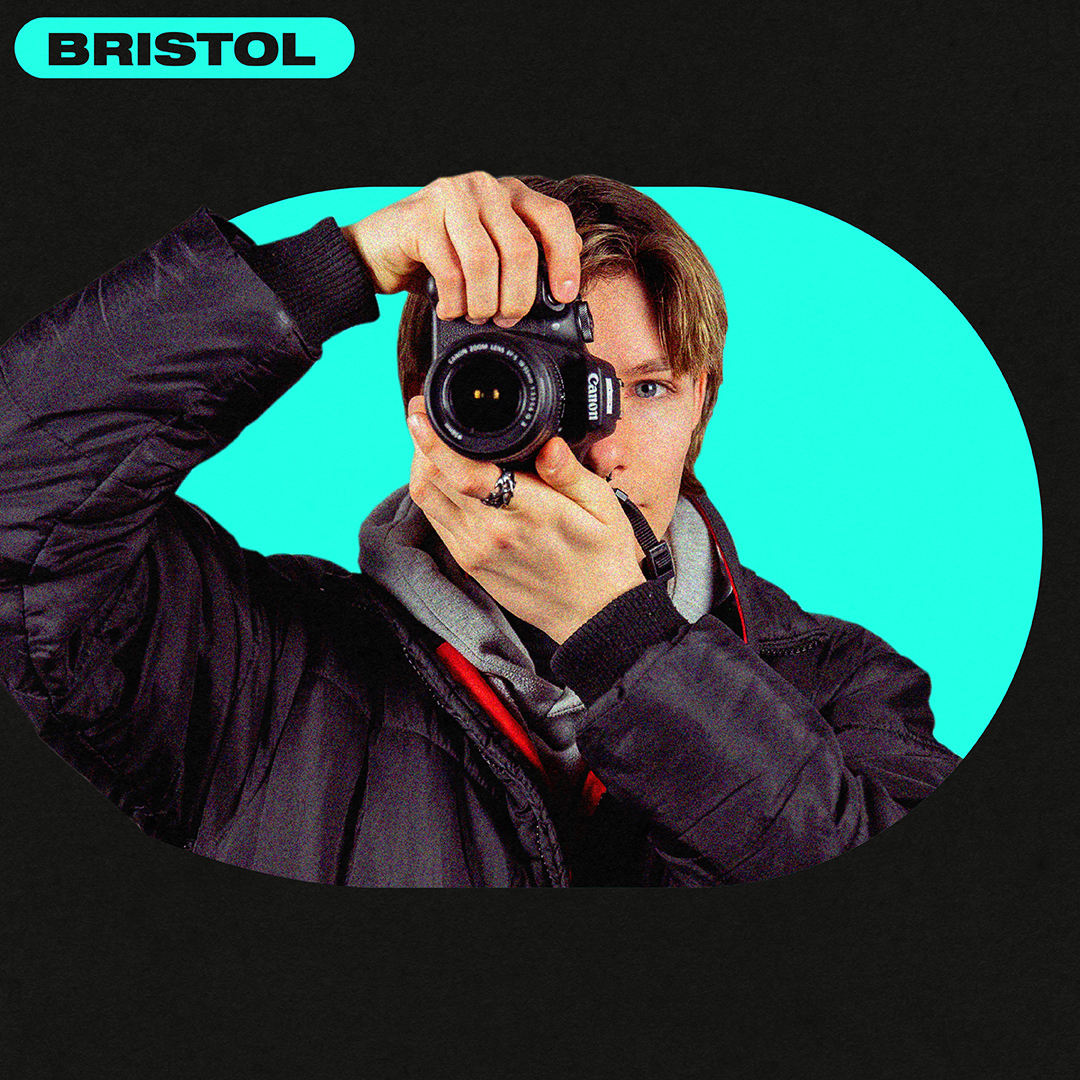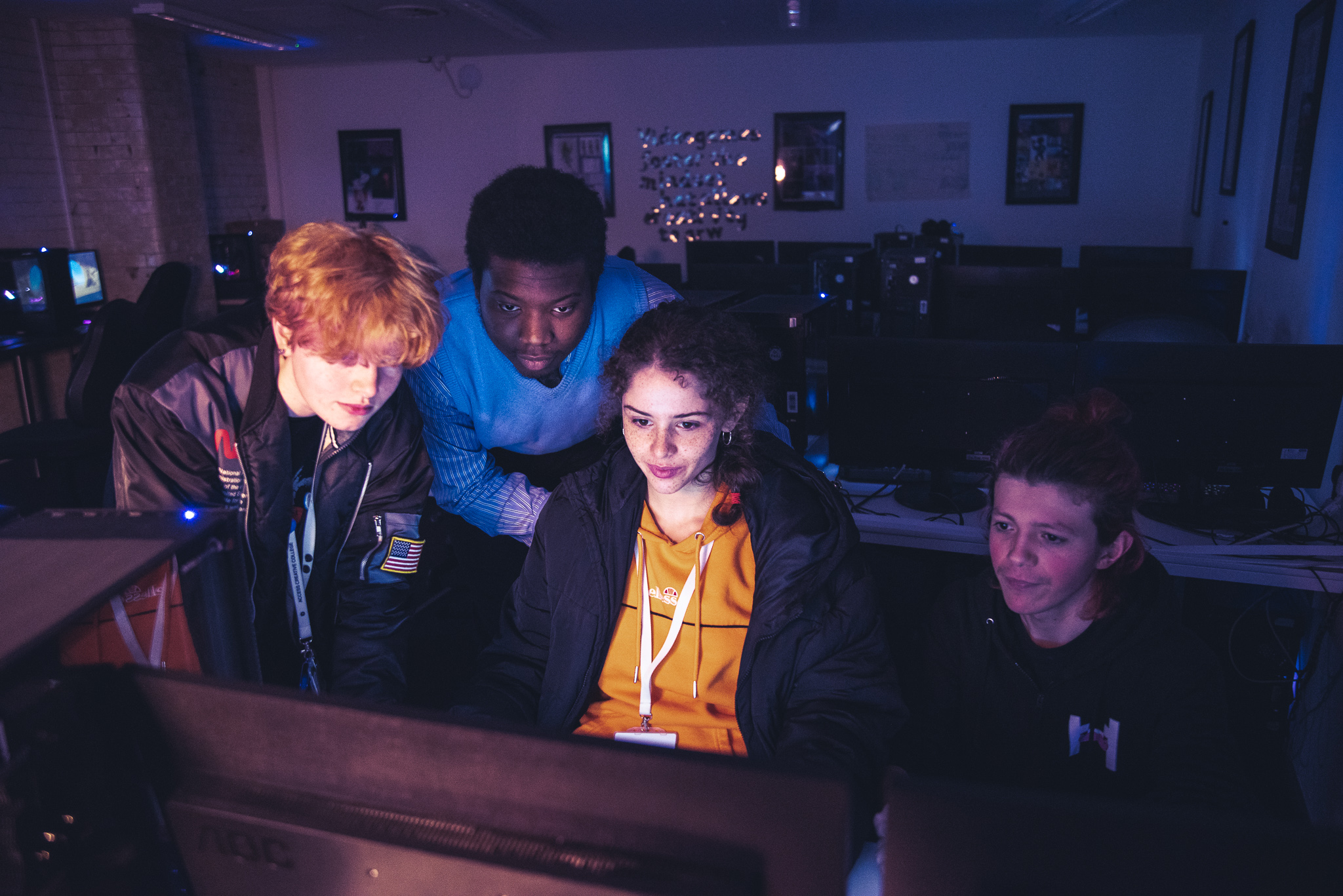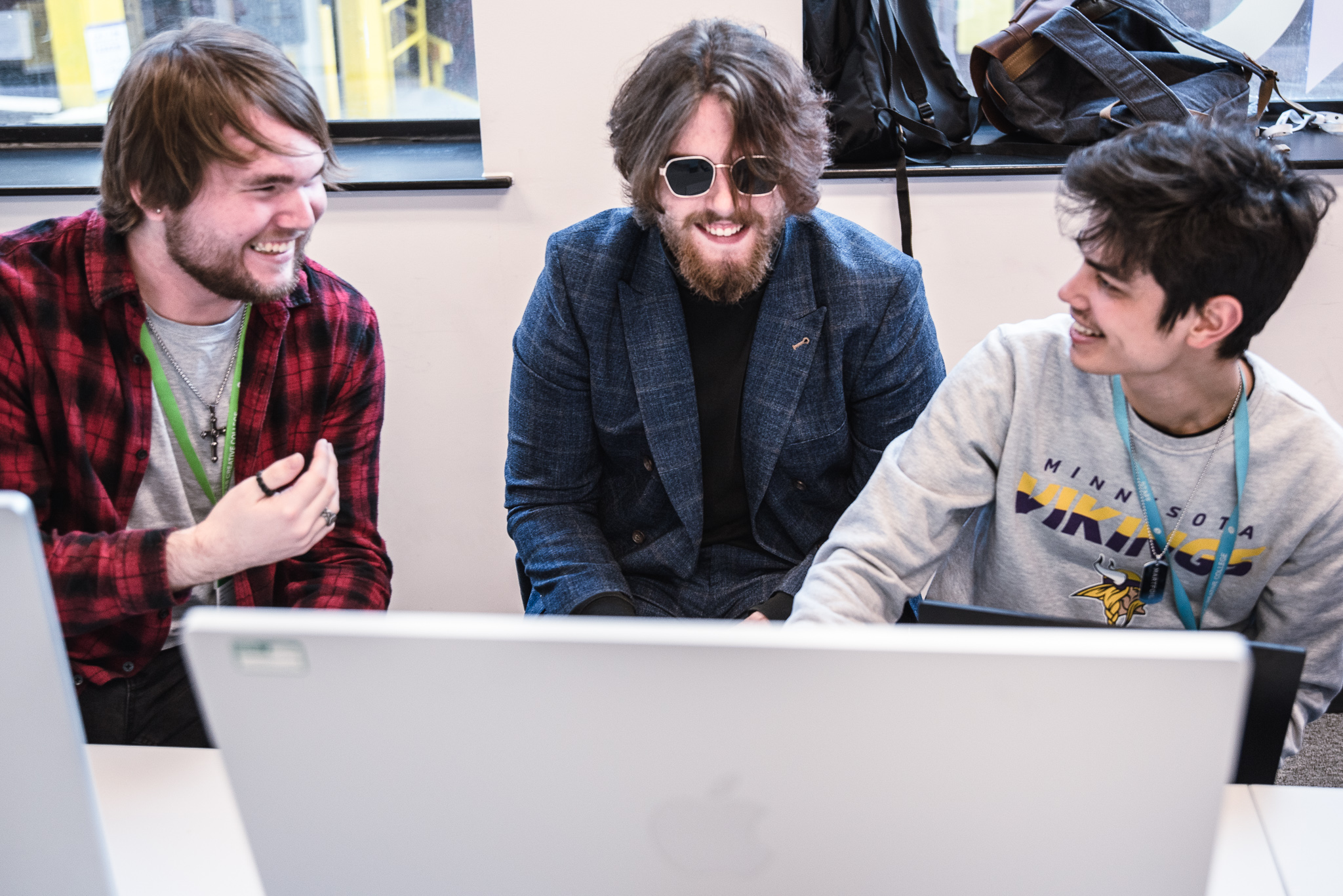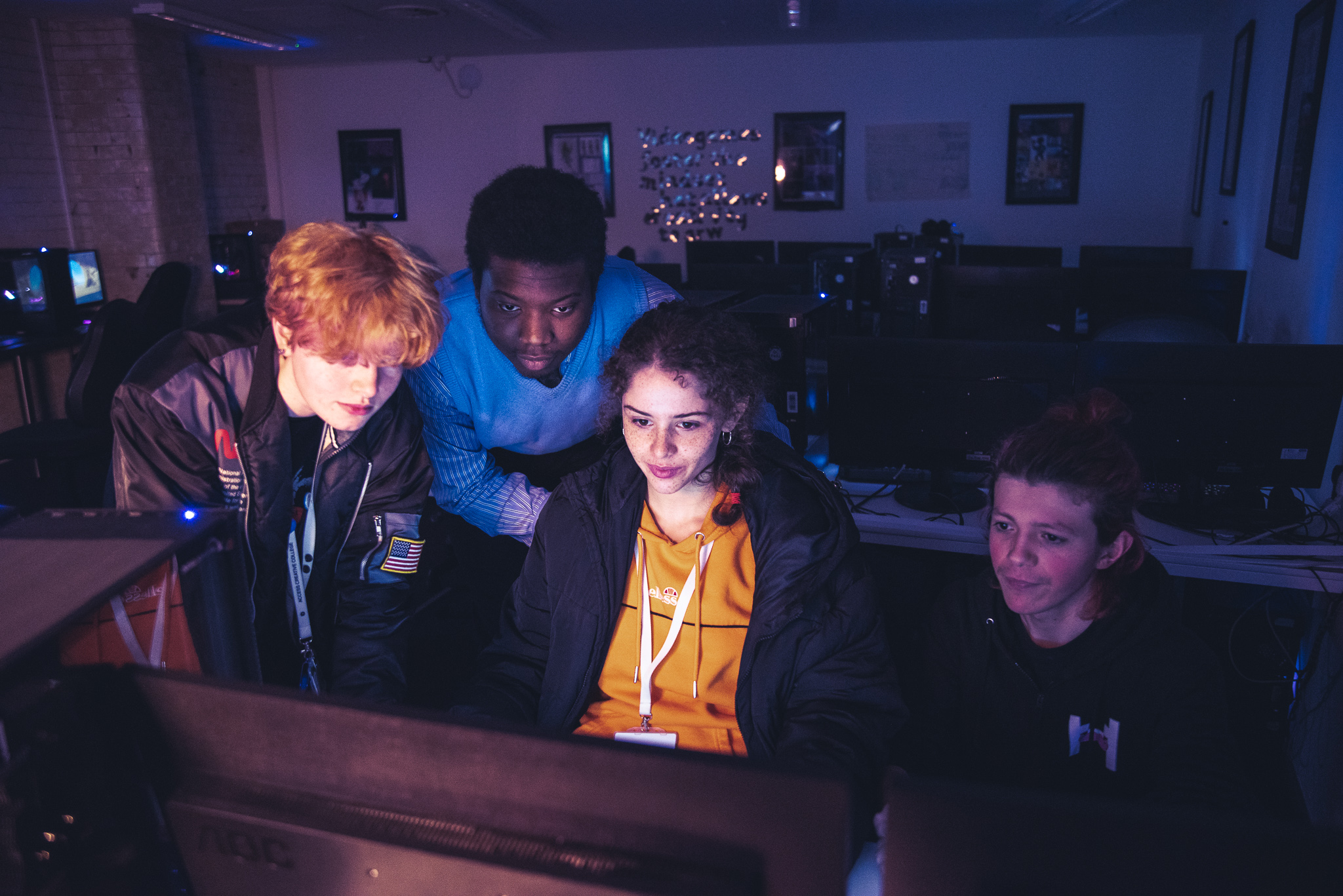dBs Institute are our sister Degree provider, offering courses in music and games in Bristol, Manchester and Plymouth. They’ve got years of experience in teaching creative degrees, incredible campuses filled with the latest and greatest technology, and they’re an all round great bunch of people that are ready and waiting to support you to achieve your creative dreams.
To show you a little bit more about them, we’ve launched a new blog series called ‘Discovering dBs’, focusing on their Plymouth campus. The first piece of the series is ‘Do you dream of a job in music?’, exploring how dBs can help budding musicians get their big break in industry.
In this week’s article, we discover why Plymouth alumni believe dBs’ Music Production courses are the best in the industry. Read on to find out more!
dBs Plymouth is a truly unique place to study. Our courses are top-class, our staff are legendary amongst our students and the culture is inspirational – if you’re looking for a music production course, look no further!
At dBs Institute, we focus a huge amount of attention on the quality of the learning environment for our students. It’s something that we’ve nurtured over decades at dBs Plymouth, where our story began.
If you want to study a diploma, undergraduate degree or another music production course, dBs Institute offers state-of-the-art facilities, tutors who remain active in the music industry and a tight-knit culture that focuses on you, your skills and your tastes as an individual.
Don’t believe us? Find out what some of our alumni say about their time at dBs Institute in Plymouth and why our music production courses are the best around.


NATASHA BERRY
BA (Hons) Music Production & Sound Engineering, MA Innovation in Sound
“If you’re a musician, producer or music tech student with a great idea or subject you want to explore, but the imposter syndrome is getting in the way, I would encourage you to reach out to an institution like dBs and talk to them. I was able to create something really important and meaningful with their support and encouragement.”


DAN WACK
A2HE DJ & Electronic Music Production, BA (Hons) Electronic Music Production, MA Innovation in Sound
“One of the things I love about dBs is the culture in the centres amongst the students and the staff. On my course, I had other students and tutors who were into hip-hop, drum & bass, techno, ambient and pretty much anything else you could imagine. There is so much incredible music coming from all angles. You are constantly being exposed to new things, it’s amazing, you get influenced by everything.”

CHRIS RICH
BA (Hons) Electronic Music Production
“I would never have expected to be able to have so much fun, alongside learning in such depth about a subject. I absolutely loved my time there. All of my tutors were great, I felt I got to connect with them all on a personal level as well, which really contributed to my learning. Super laid back environment, but always keeping you wanting to learn, alongside unparalleled resources.”

CHE LEADER
A2HE: DJ & Electronic Music Production, BA (Hons) Sound for Games & Apps
“Everybody there shares the same passion. The DJ & Electronic Music Production course is fantastic. I got kicked out of every single school and college I ever went to and I got the Student of the Year Award at dBs! It’s the first place I’ve ever been to where they treated me like an equal. There was no mad hierarchy. It was none of this, ‘You’re a student, I’m the teacher’, it was just that we all love music.”
“The lecturers are real and they’ve done it. They’re inspirational. You’re not learning from someone who went to uni 20 years ago and is reading the same syllabus, you’re getting first-hand experience from people who have done it and you’re surrounded by other music nerds. Every conversation you have is about music, everything is music. Every day when you walk in, you hear music and you’re just so inspired. You go home, you want to make music… If you love music, go and study even if you’re not sure. You could go there thinking, ‘I’m a sound engineer,’ and you come away and now you’re a live sound engineer or you could go there like, ‘I’m a rapper,’ and actually, you’re a wicked recording engineer. They give you world-class facilities to practice in and perfect your skills. It’s such a hub for inspiration.”

DAN KELLY & BENNY CRISPIN
BA (Hons) Music Production & Sound Engineering
“The course taught us production and recording techniques which we then went on to use in our various roles within the industry. We both feel like we left dBs Institute with a much better understanding of music in general and the ability to analyse it in depth”
“We learnt a lot from our tutors including synthesis, music production, record label management, how the industry works and how technology can help you progress.”
“We have dBs Institute, its amazing facilities and tutors to thank for a lot of our achievements. It really is the best place to go to get equipped for a career in music!”


MATTHEW OWEN
A2HE Music Production, BA Sound for Games & Apps
“I joined the A2HE course in Plymouth at a bit of a turbulent time in my life where I wasn’t too sure where I wanted to go or what I wanted to do. All I knew was that I enjoyed audio and thought I would explore this. The tutors were fantastic, pushing me as much as I could to try different techniques and to challenge myself at all times. I also received some support through their counselling at the time, and this was a great experience. I owe a lot to the foundations which the Plymouth campus gave me! The course showed a breadth of the audio world I didn’t know existed, and because of that, I found my passion. Each area helped with the next until eventually I knew what I wanted to do. The skills taught I have used nearly every day at my job and are a big reason why I am where I am today.”


EM MORLEY
BA (Hons) Electronic Music Production
“I love that the course is so hands-on, especially in terms of using hardware. My favourite piece of hardware to perform with is the MIDI Fighter. I’ve really enjoyed learning techniques that will enhance my skills as a performer in the future. This is an area where I see a large chunk of my work coming from.”
“I had never seen anything like dBs before, I didn’t know that a music institution like this existed. After the first visit, there was no doubt about being a part of it. I never felt like an academic in STEM subjects. When I was presented with a place where I could focus on what I love, surrounded by creative people with access to all of the state-of-the-art equipment, it felt like home to me.”
“As I started to dig deeper I also learnt that many of the tutors were seasoned industry professionals who had enjoyed the type of career that I wanted to create for myself. It was exciting to learn all that I could from them.”
“Although it’s true that you can learn a lot online, nothing can really replace having proper feedback from your tutors or other people on your course. It helped me to progress so much quicker. Also, there is nowhere else in the area that has what dBs has to offer in terms of equipment, recording spaces and knowledge all in one place. If you are serious about your music, like I am, I highly recommend it! You’ll love it!”

AIDEN MORGAN
A2HE DJ & Electronic Music Production
“…When I was 13 I heard about dBs Institute and couldn’t believe there was this magical place in Plymouth and Bristol where you could study electronic music. So I went to an Open Day and came back set on studying at dBs Plymouth someday. I didn’t get along well at school, so the one thing that got me through the last few years was a dBs badge I got that day and that same badge is sitting on my wall right now!”
“My favourite part of my experience there was the relationship I had with my tutor Matt Radley. He’s a real legend and was always available at the drop of the hat for advice or just to bounce ideas off. All the staff and facilities are top-notch, excellently maintained and I think that aspiring artists have access to all of those resources is a game changer…”
“The working environment is great and the staff are all amazing, they’ll end up feeling more like family than your teachers. It’s very one-on-one and if you go in with an open mind and ready to learn, you’ll have the time of your life.”


SKYE WALTERS
A2HE: Music Production, BSc (Hons) Live Sound
“My favourite thing about being a dBs student was the sense of community. My journey, like many students, wasn’t always easy. But there has always been a community of fellow students and staff there to work through things together.”
“dBs taught me to be okay with not knowing everything but to trust my learning process, and use that to break down challenges that feel unattainable. I would absolutely recommend dBs. You will not find a place filled with more dedicated and supportive industry professionals.”


RYAN GREEN
FdA Sound & Music Technology
“I had friends who had previously studied at dBs Institute Plymouth who recommended it, and after an open day visit and seeing the facilities and the content of the FdA Sound & Music technology course, I knew I wanted to study there. I really wanted to build my technical skills as an audio engineer, other courses in the area involved a lot of either performance or composition elements, but dBs Institute stood out because of its focus on recording, mixing and audio technology.”
“I feel that audio is quite a specialist field but it’s also an incredibly vast subject to study. There is so much to learn and so many different paths you can take to build a career working in sound. Independent institutes such as dBs cater for this really well, the staff have industry experience and are passionate about the subject. You can learn so much by spending time around other audio engineers or music producers. The facilities and equipment available are great and cater really well to building your technical and practical skills.”

SAMMY WIGHTMAN
A2HE: DJ & Electronic Music Production, BA (Hons) Electronic Music Production, MA Innovation in Sound
“The course [A2HE] really pushed me to learn new techniques and approaches to music production. My tutors Amy Edwards, Matt Radley (aka Crystal Mad) and Paul Connaughton taught me how to use Logic Pro X. They helped me to think about music in terms of space, depth, width, dynamics and context as well as considering the emotional impact of my work. I also discovered techniques that helped me create more punchy and more coherent mixes. In short, dBs helped me to up my game hitting a more professional level.”


BILL SELLAR
FdA Sound & Music Technology, BA (Hons) Top Up: Music Production & Sound Engineering
“The course was great. Before starting I had around six years of experience composing electronic music and I was a little worried that this previous experience would make some of the course a little redundant. However, within a few weeks of studying, my eyes were opened to a wealth of knowledge, that before I hadn’t even considered. This only got better and better as I progressed through the course.”
“Honestly, it was the best four years of my life so far! After working as a mechanical engineer for 12 years previously, I have done the gruelling nine to five. For me, this was a chance to pursue a passion, so I made every effort I could to get as much as possible from it.”
“All the tutors and staff at dBs Institute did everything they could to reciprocate that effort, which made for an amazing educational experience. I loved the whole thing and would do it again if I could!”

OWEN TRICK
A2HE: Music Production, FdA Sound & Music Technology
“Yeah, it’s been great. I really appreciate all of the lectures and tutors that I’ve come across during my time at dBs. They’re not just teaching, they’ve all got industry experience. I think that really makes a big difference because you’re not just being told information, you’re being told information that you can transfer to a real-life environment, which is really good. I’ve definitely loved having the faculty that are around because they’re just so knowledgeable on the content, but also how to apply the content.”

JACK HALE
FdA Sound & Music Technology
“As a dBs student in Plymouth, my favourite aspect was the immersive learning environment. The opportunity to delve into music production and gain hands-on experience was invaluable. The support from knowledgeable tutors who were always willing to help, coupled with the chance to build essential contacts in the music industry, made my time at dBs truly memorable. Additionally, being surrounded by a variety of high-quality musical equipment added an exciting and practical dimension to my education. Overall, the combination of a vibrant learning atmosphere and the resources available made my experience as a dBs student in Plymouth incredibly fulfilling. As a plus, the nightlife in Plymouth is great! I would highly recommend dBs Plymouth to anyone aspiring to enter the music and creative industry.”


MARNIE ROSE DAVIDGE
BA (Hons) Electronic Music Production
“I loved it. The main thing was that it gave me time and it gave me space to be able to figure myself out. The facilities are great and it was nice to be surrounded by studios and equipment. I loved everyone on my course and it was really beneficial having such a small group, compared to friends of mine who had hundreds of people on their course.”
“Having lecturers who have so much experience… I think Pete [Day] made the biggest impression on me. I was always sending him mixes years after graduating and getting his feedback. That was really great.”
Learn more about our Access to HE Diplomas, Undergraduate degrees or another one of our Music Production Courses or visit us at a dBs Plymouth Open Day!
![]()

![]()

![]()
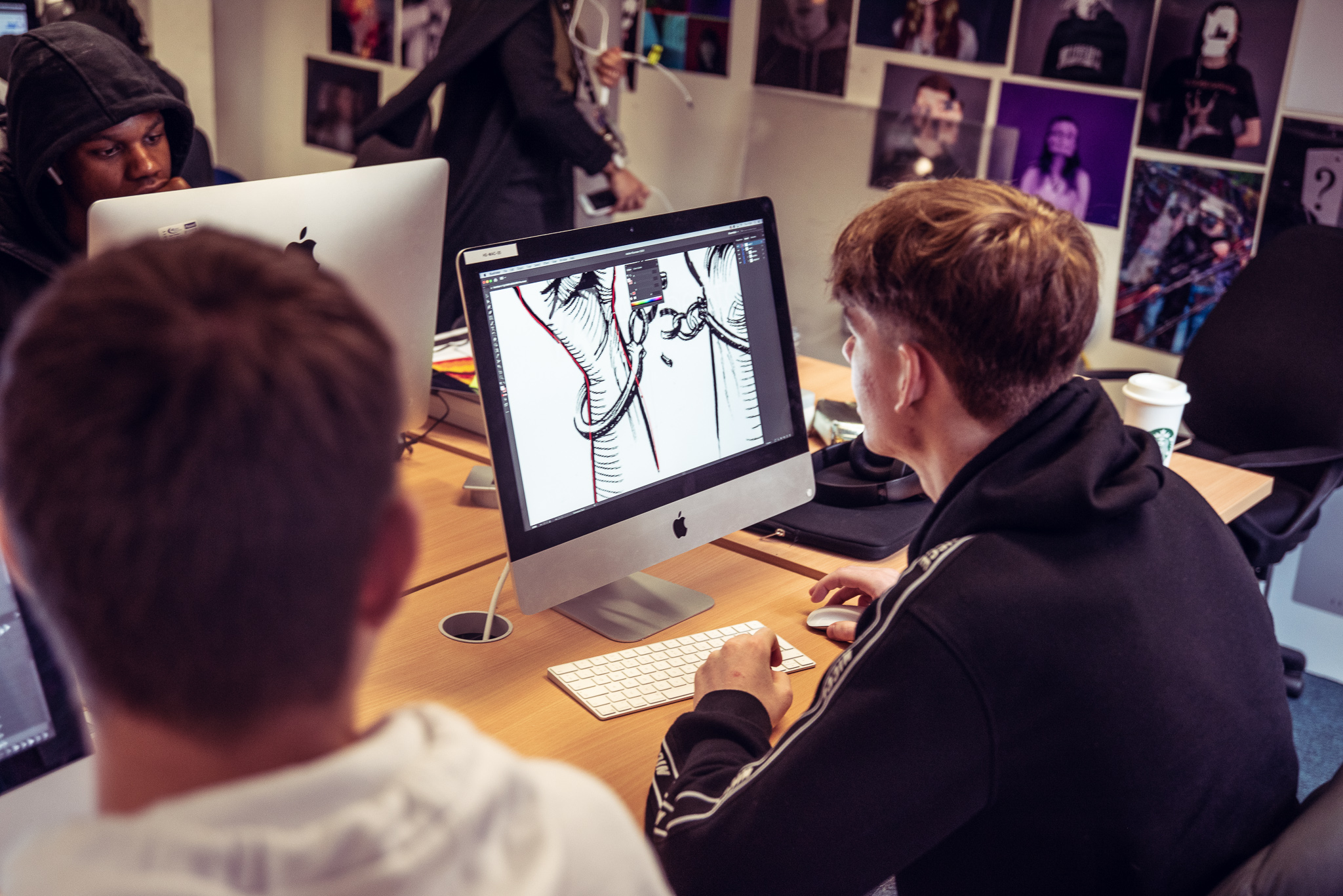
![]()

![]()

![]()
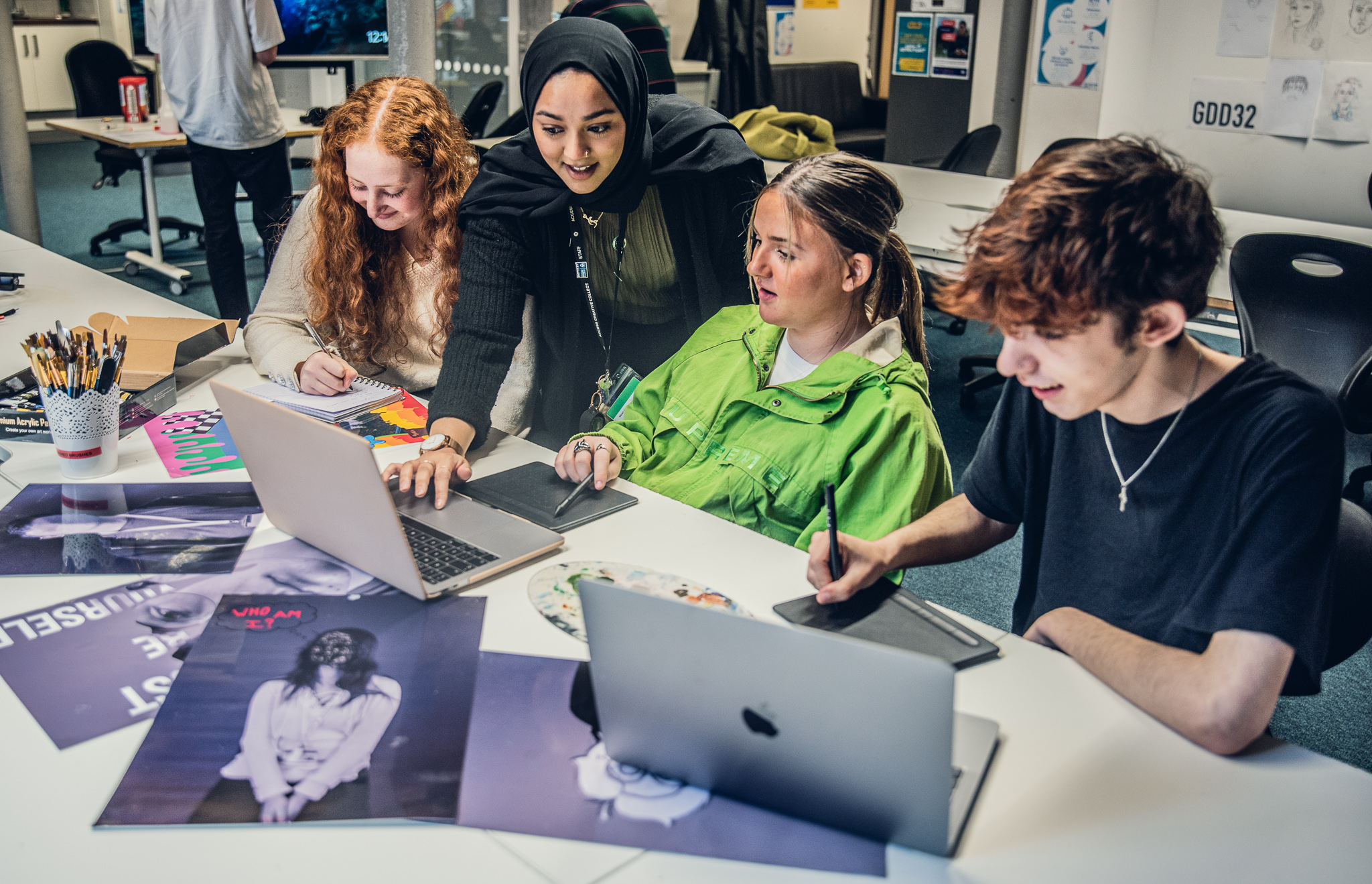
![]()

![]()




















